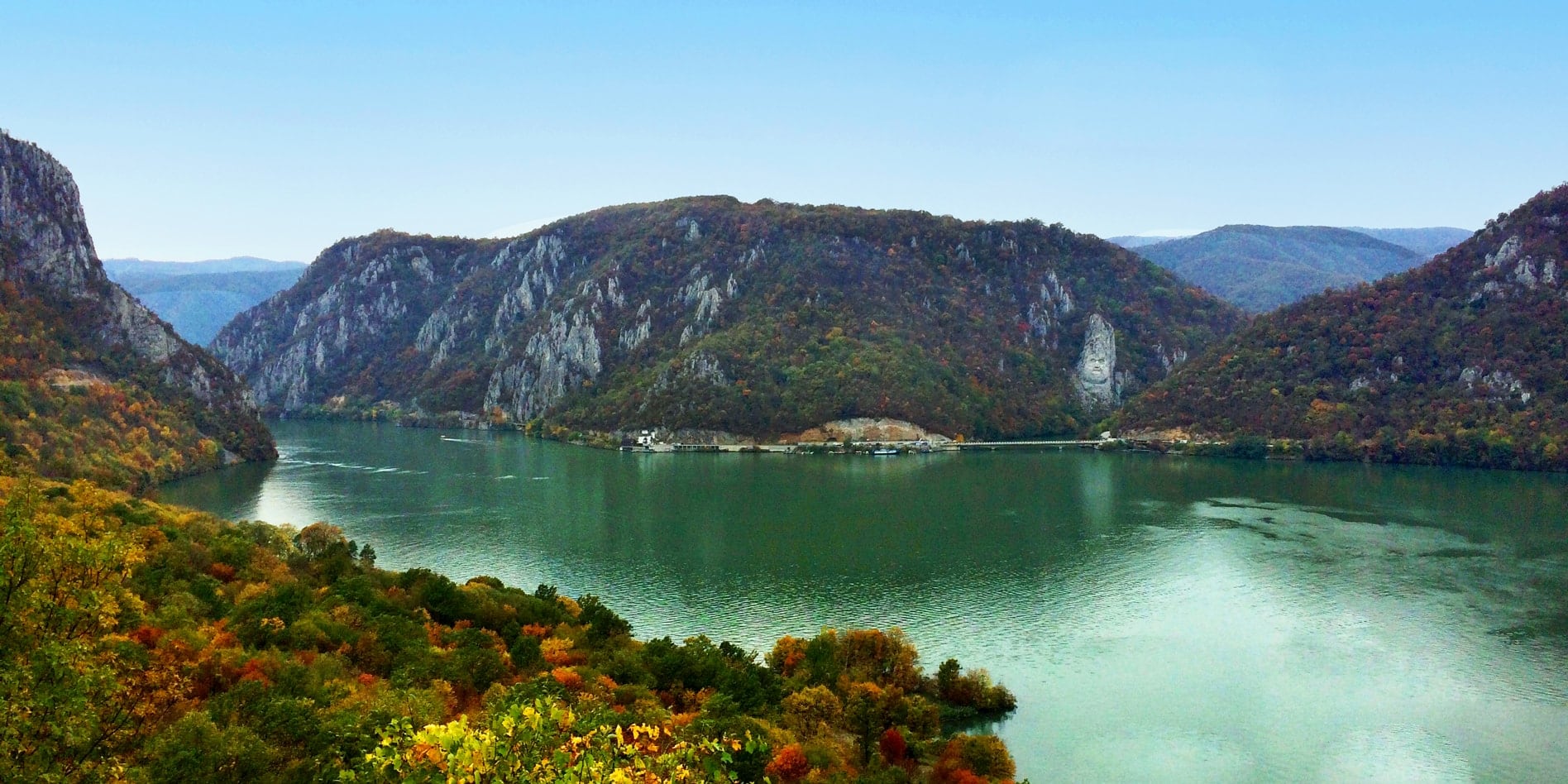You may have preconceptions about what it is like to go on a road trip through Serbia—we certainly did. We worried about its safety and whether foreign visitors would be welcome.
You can put that idea to rest. Our Serbia road trip was full of stunning scenery, interesting history and oodles of helpful and friendly people.
Road-tripping in Serbia is the perfect way to explore this landlocked country alone or as part of a larger Balkan road trip.
Serbia, once part of Yugoslavia, has beautiful mountains and historic cities but currently remains off the tourism radar.
It is home to the UNESCO-listed Djerdap National Park and its historic capital city, Belgrade, sits at the meeting point of two major rivers, the Sava and the Danube.
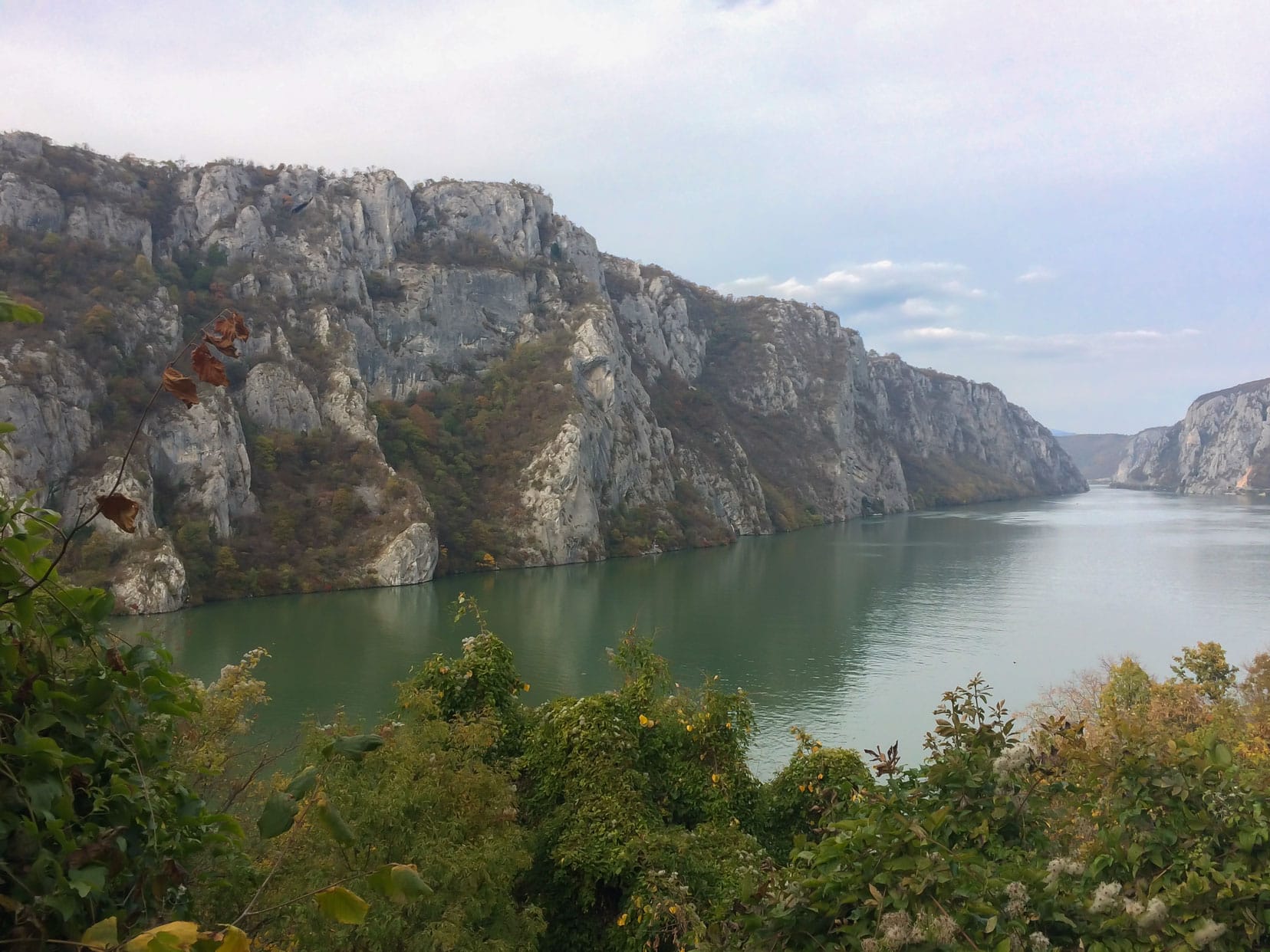
Planning a Trip to Serbia?
- 🚗 Hiring a car? We recommend getting a quote from DiscoverCars
- 🚐 Hiring a campervan? We recommend Motorhome Republic
- ⛑ Arranged your travel insurance? Compare quotes from World Nomads & Safetywing
- 🪪 Order your International Driver’s Licence online here
- 🏩 Booked your accommodation? We use Booking.com to find the best deals
- 🐾 Is someone pet-sitting for you? 🐾 We use and love TrustedHousesitters
- (Get 25% off at checkout for new memberships with our discount code: LIFEJOURNEY25)
Nikola Tesla, the famous engineer and physicist, was born here, and another son of Serbia, with more recent fame, is Novak Djokovic, one of the world’s top tennis players.
However, Serbia still suffers from 60% youth unemployment, and many of its talented youth leave to live and work elsewhere, a phenomenon called Brain Drain. Perhaps attracting more tourism will help boost Serbia’s economic recovery.
We spent a year road tripping through Europe in a campervan and have to say that the Balkan people were some of the most amiable we encountered.
Information You’ll Find in this Serbia Road Trip Post
- Stopovers and motorhome sites in Serbia for this road trip
- Suggested 5-day Itinerary in Serbia
- Advice on driving in Serbia
- An interactive map with places to visit on a Serbia road trip and motorhome overnight spots
- Handy tips to make your motorhome tour of Serbia as stress-free as possible
Serbia Road Trip Interactive Map
How to Use This Interactive Serbia Map
To use this map, expand it using the square symbol at the top right. The key is on the left. By clicking each location, you will find extra information.
For example, each Campervan overnight stop on the Map has a web link to Camper Contact, where you can view the facilities available, the price, opening times, and useful user reviews on each Serbia motorhome campsite.
- Orange motorhome icon = Motorhome overnight stops
- Purple location icons = Places to visit
Where to Road Trip in Serbia
We entered Serbia after road-tripping through Bosnia-Herzegovina and began our Serbian road trip wild camping in a car park in Gornja Koviljaca.
We hadn’t been able to find the campsite we were heading for—I must admit, this wasn’t the first time this had happened on our Europe trip. We thought we were wild camping, but we had, in fact, found the campsite and just didn’t realise it!
It wasn’t until I wrote this post and looked for the camper site we were trying to find that I discovered this. It was a free park for us, but you’d usually be required to pay. Whoops!
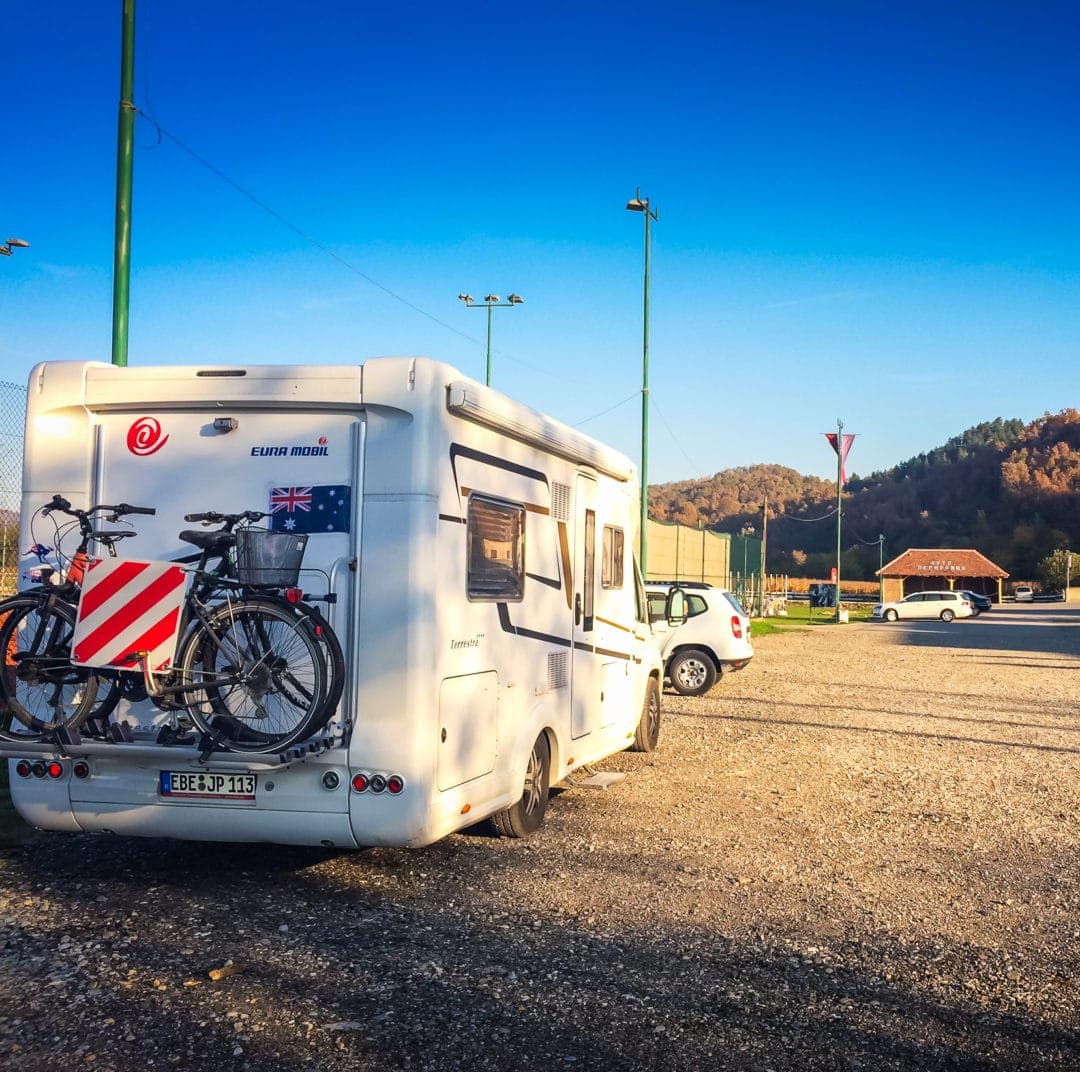
Our 5-Day Serbia Road Trip Itinerary: Overview
- Belgrade
- River Danube and Derdap National Park
- Nis Skull Tower
- Mataruska Banja
- Zica Monastery
- Studenica Monastery
- Maglic Fortress
For a more detailed suggested itinerary, jump down here.
Belgrade
Driving into the outskirts of Belgrade and passing the stark apartment blocks reminded me that rule under Communism didn’t end that long ago. Specifically, it was 1990 when Serbia was still part of Yugoslavia.
And it wasn’t until 2006 that Serbia became independent.
Below, we’ve listed some of the best sites to visit in Belgrade but there are plenty more to see if you are in Belgrade for longer than a day.
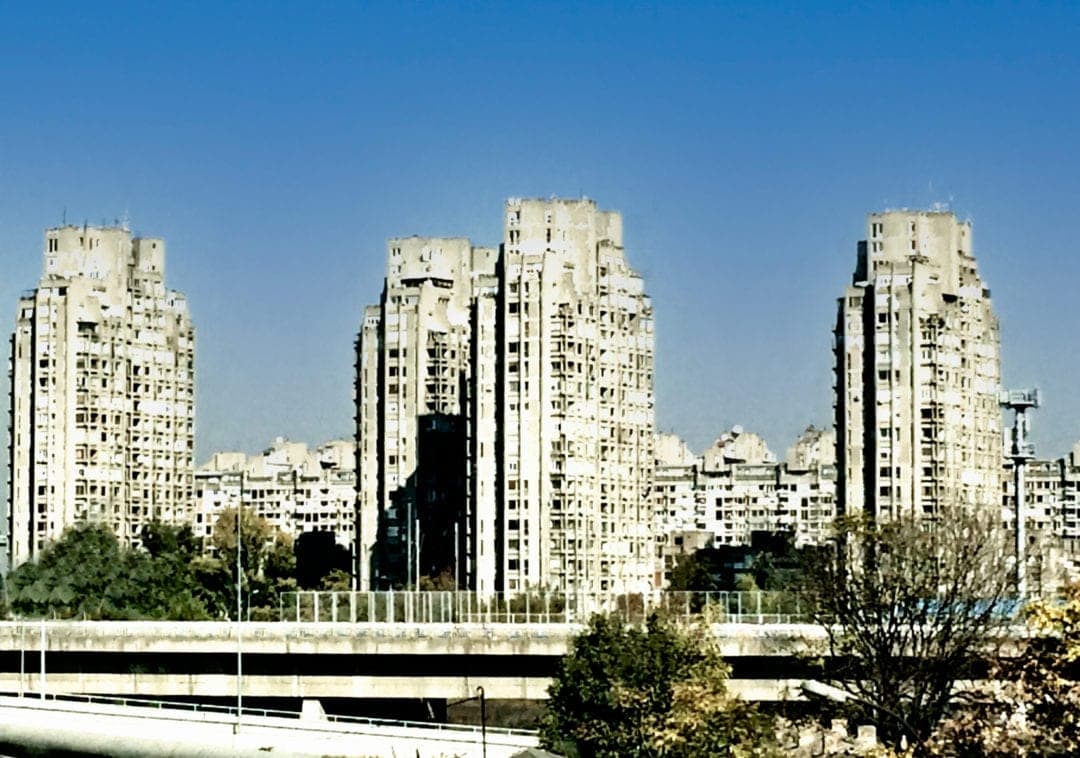
Belgrade Fortress
The main attraction in Belgrade is its Fortress, Kalemegdan, which has been destroyed and rebuilt more than 40 times over the centuries—a sign of Serbia’s turbulent past.
Belgrade is known locally as Beograd (white city) because the fortress was built on a white ridge overlooking the converging rivers below.
From the fortress’s ramparts, there are fantastic views across the Danube and Sava Rivers, and the surrounding park, Kalemegdan Park, is the largest and prettiest park in the city.
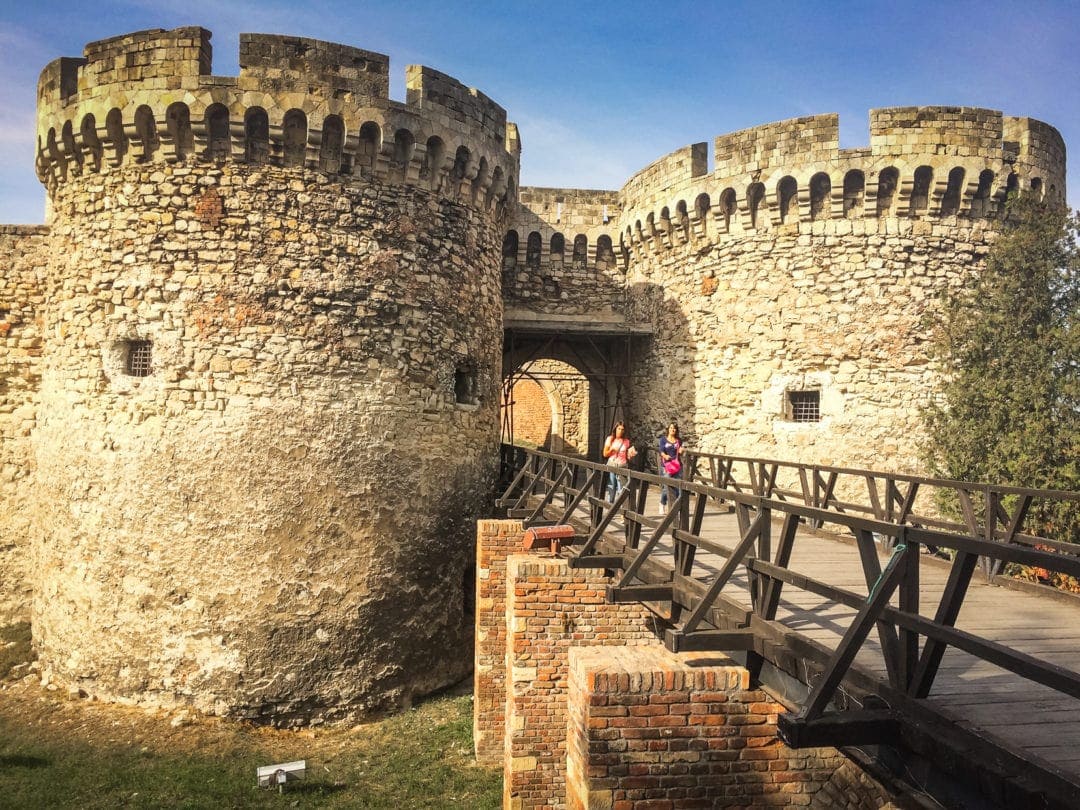
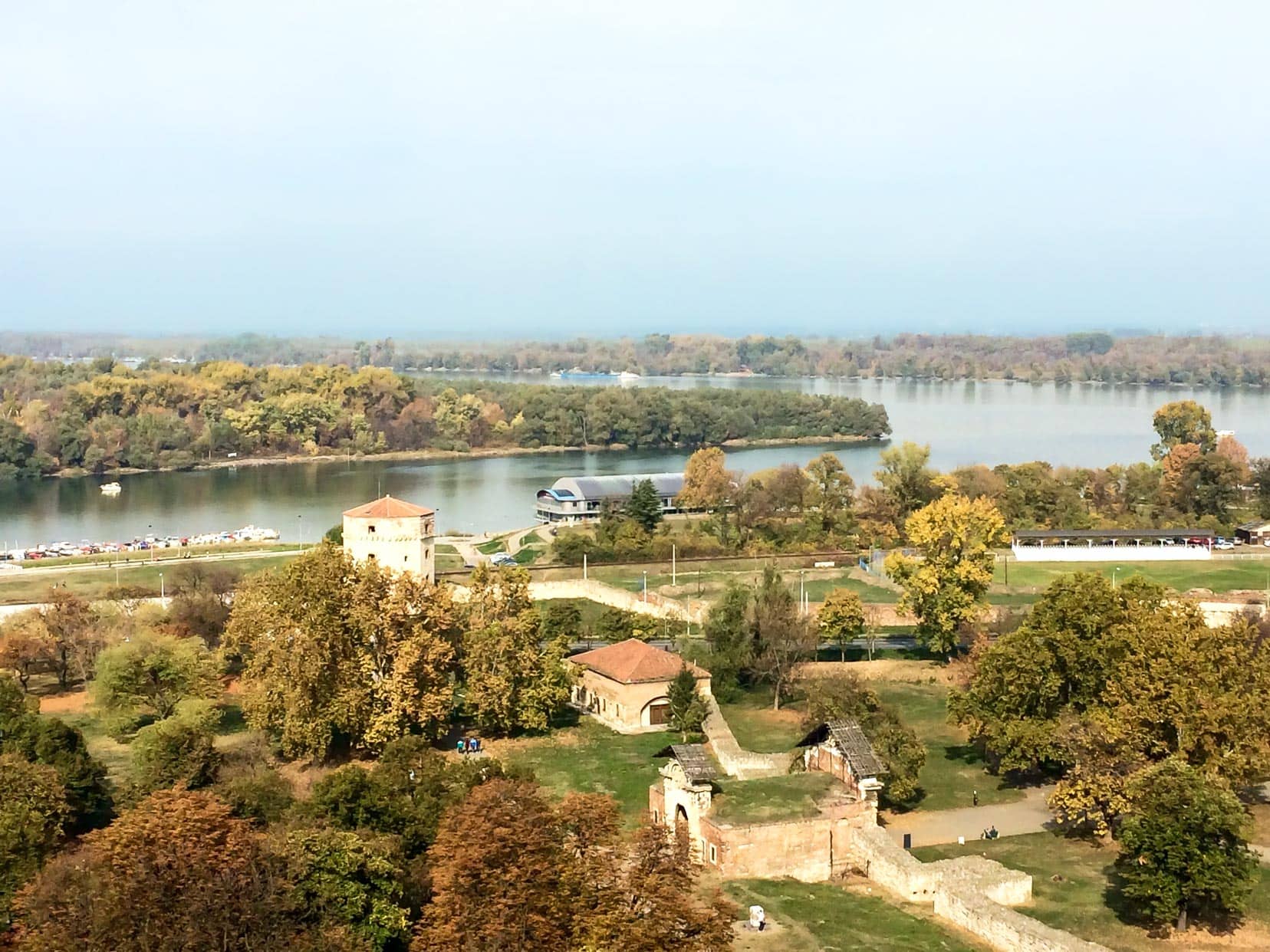
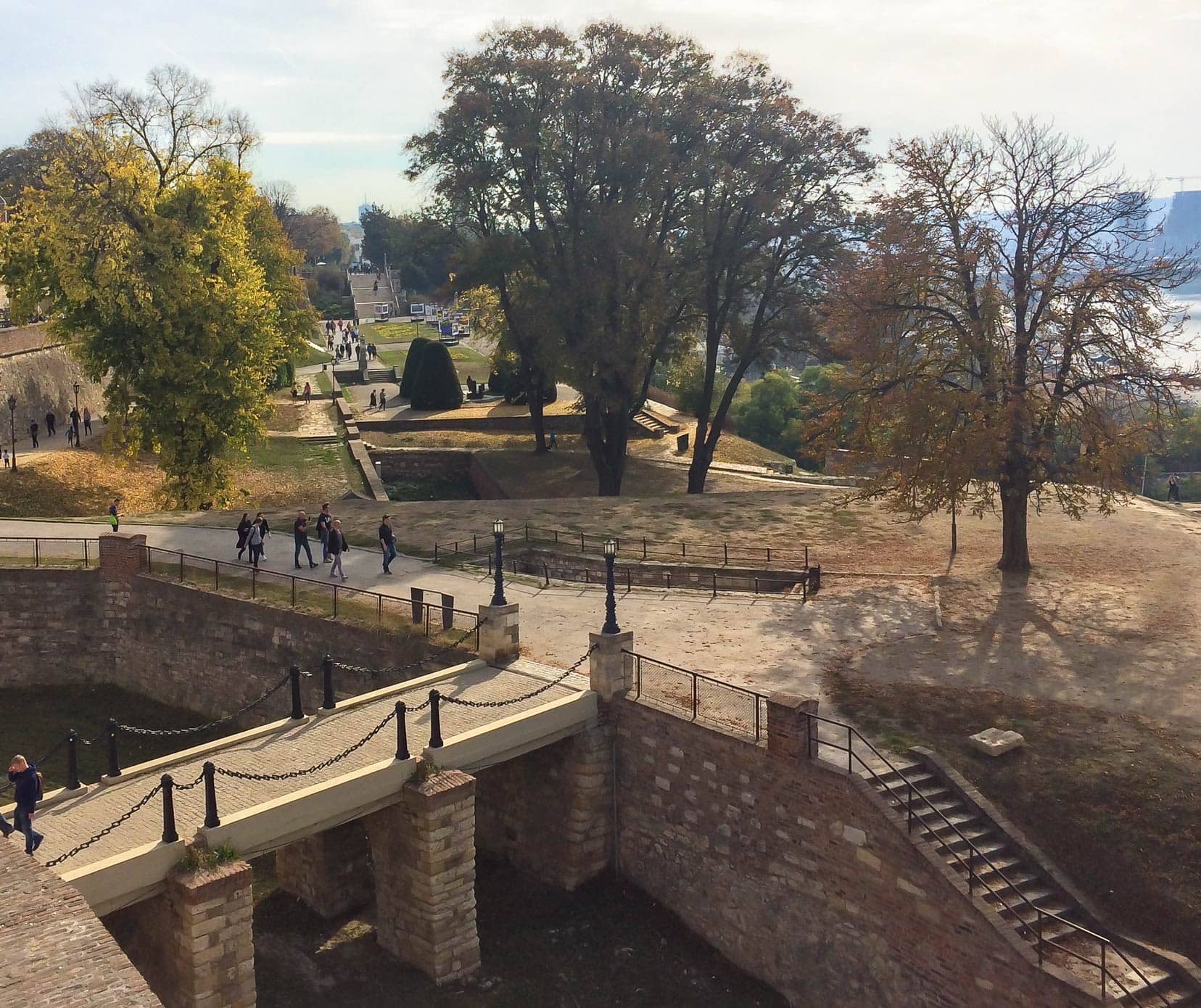
Trg Republic Square
Trg Republike is the main square of Belgrade and a popular meeting place. The square also contains the National Museum, National Theatre, Prince Mihailo Monument, and Tourist information.
And it was at Republic Square that we met our guide for our Free Walking Tour of Belgrade.
We recommend taking part in a free tour or booking a guided tour to appreciate the city’s history and hear first-hand accounts of life in Serbia.
Sitting proud upon his horse in the centre of the square is the Prince Mihailo (Michael) Monument, considered a monument of great cultural importance.
It was set up in 1882 in honour of Belgrade’s liberation from the Turks. Mihailo Obrenović (1823-68), the Prince of Serbia, played a monumental role in freeing Serbia from Ottoman (Turkish) rule in 1867. However, his assassination in 1868 cut short his reign.
Interesting Fact about Statues on Horses:
- If the horse has one leg raised, it shows that the rider was assassinated.
- With two legs raised, the rider died in battle.
- With all four legs down and none raised, the rider died of natural causes.
The National Museum in Trg Republik is finally open for visitors after being closed for 15 years for supposed renovations. It displays artifacts and art representing Serbia’s history and culture.
Note that the museum is closed on Mondays, and entrance is free on Sundays.
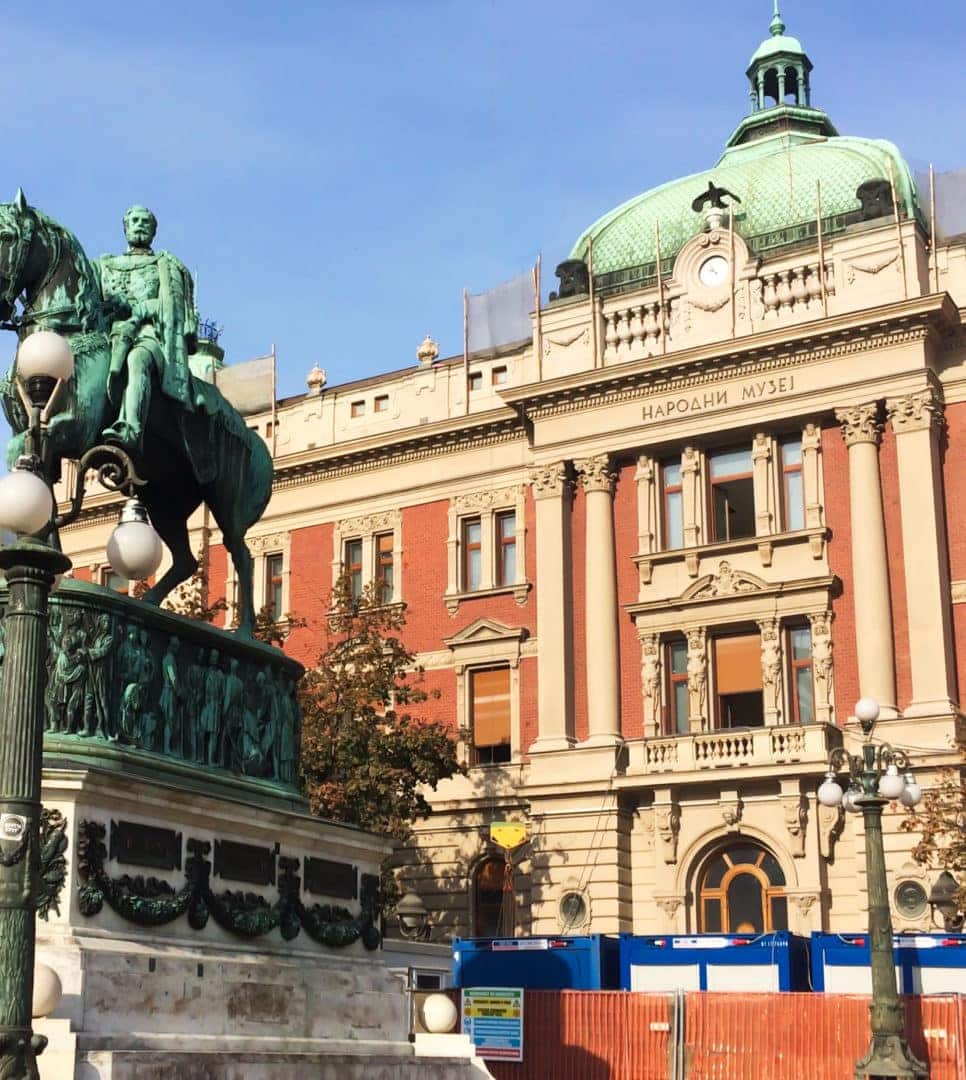
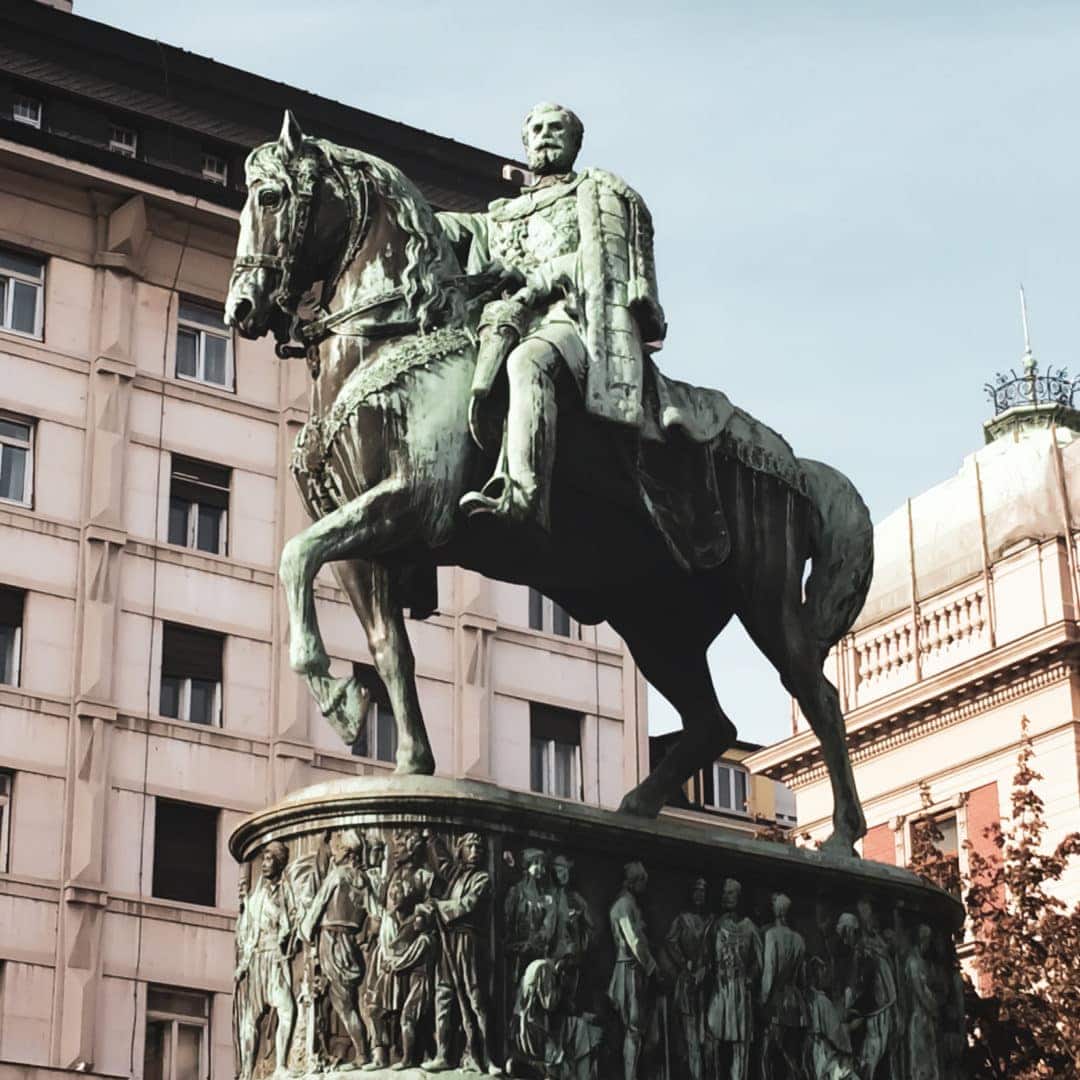
Skaradlija (Bohemian Quarter)
Skaradlija (or Skadarska Street) is the Bohemian area of Belgrade and dates back to the 1830s when it was known as the Gypsy Quarter. Not surprisingly, this was due to the number of gypsies living there.
Later, artists, poets, writers and musicians frequented the area which is now filled with colourful facades, cafes and quirky shops.
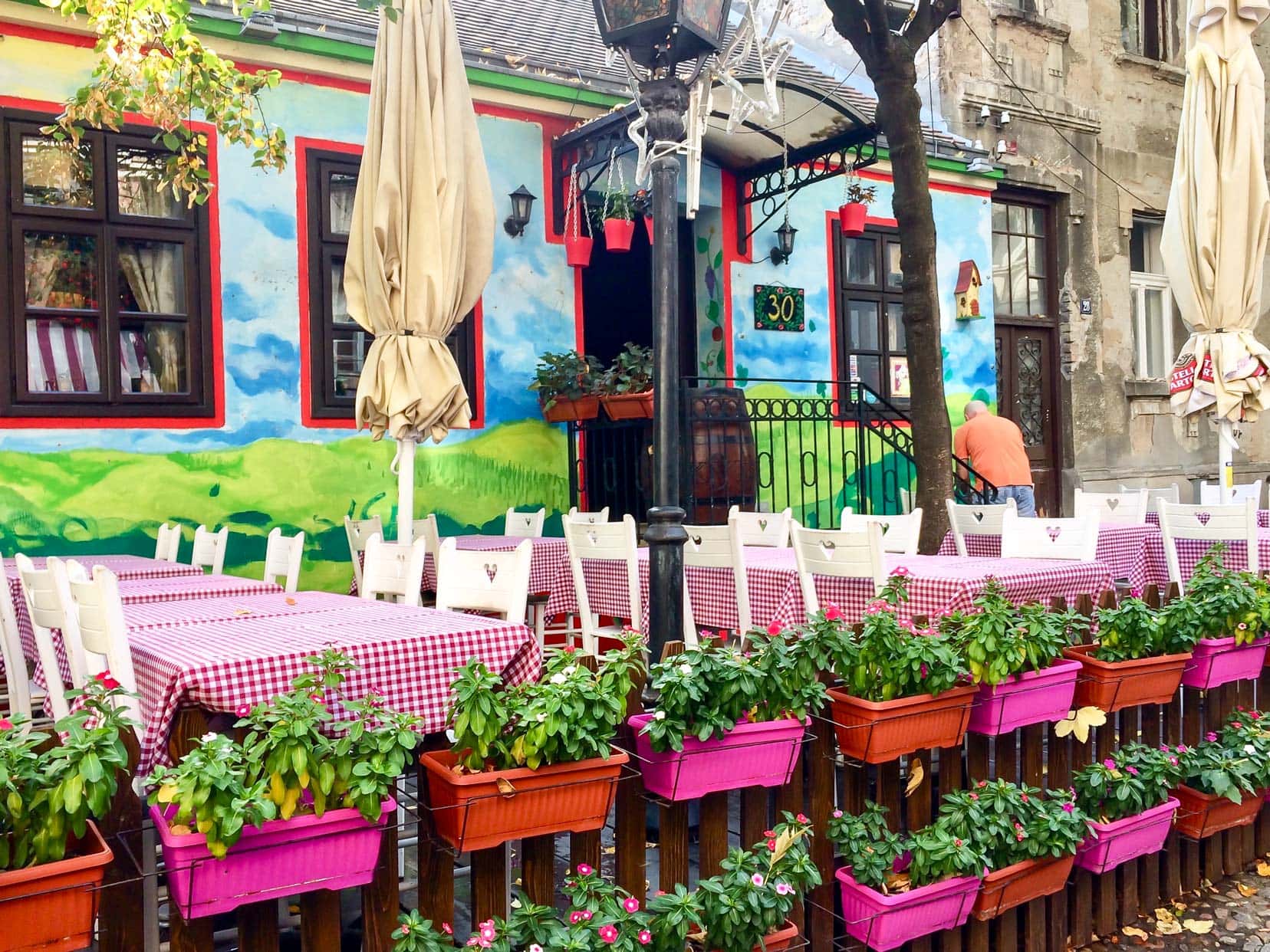
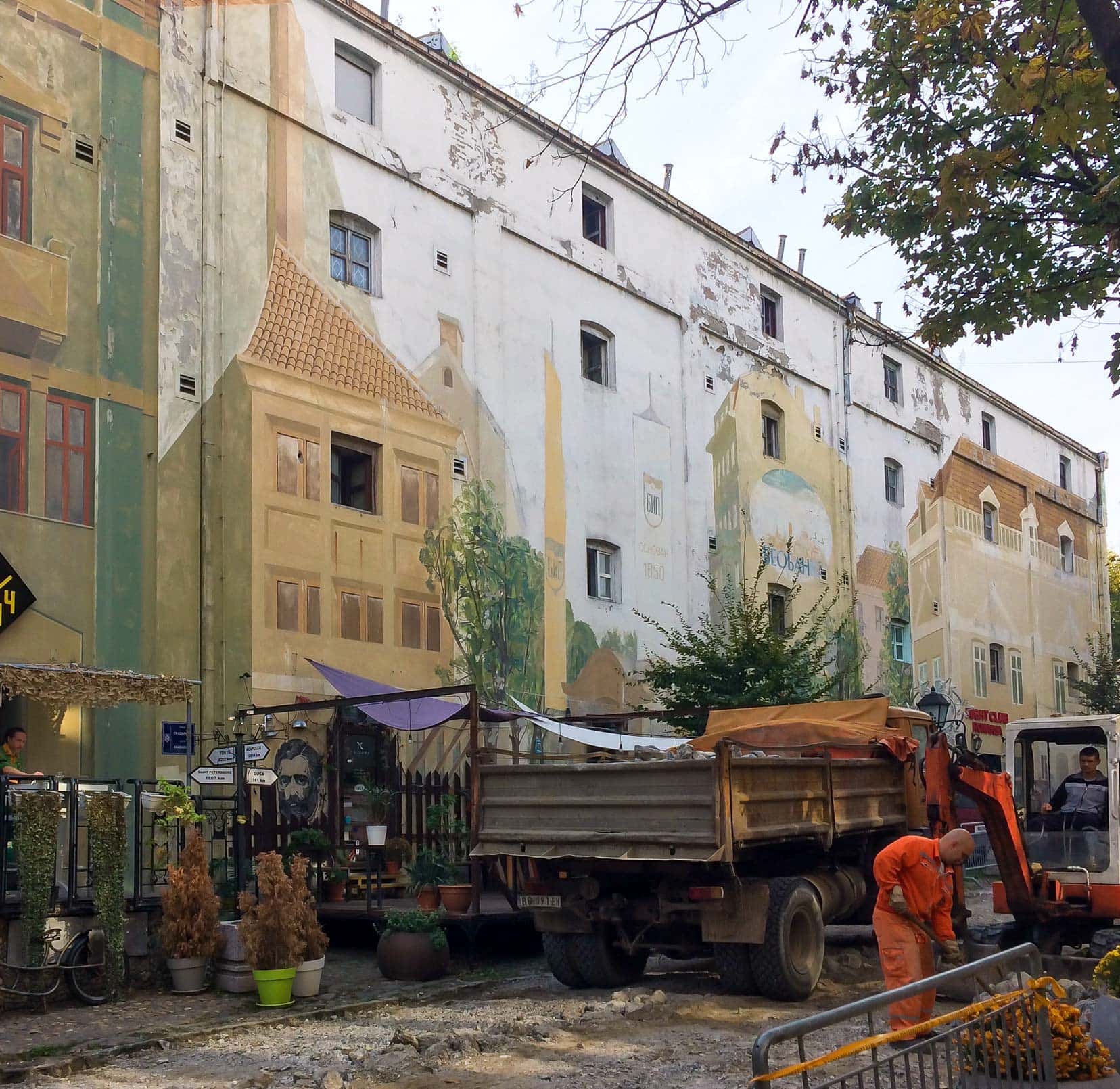
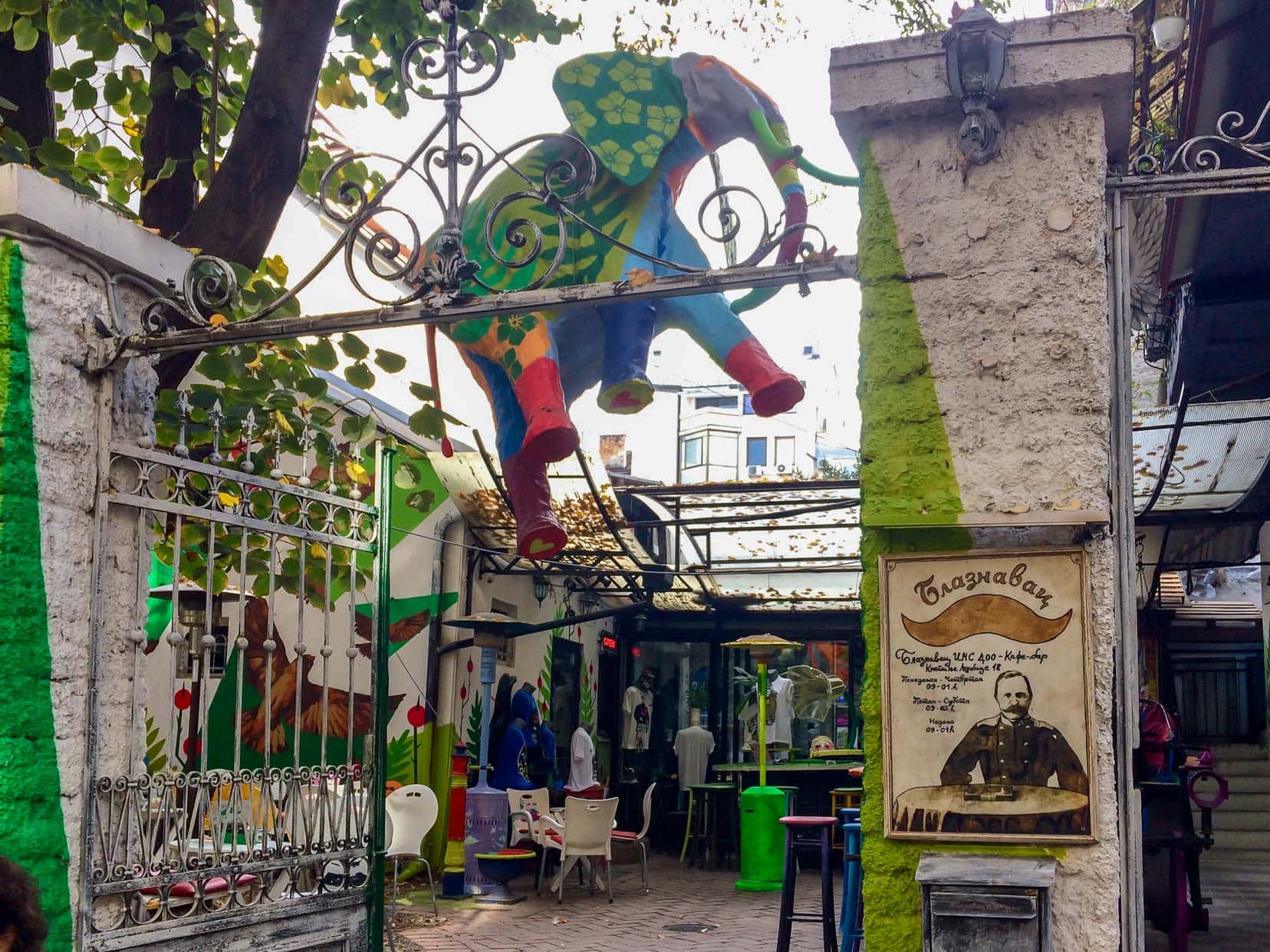
Sava Temple
Sava Temple is one of the largest orthodox churches in Europe and was mainly built from donations, including funds from Russian President Vladimir Putin.
The Temple is an impressive building built on the site where St. Sava’s remains were burnt on a stake.
St. Sava was the original founder of the Serbian Orthodox Church. He died in 1235, but as an insult to the Serbs, in 1594, the Turkish rulers, who ruled over and persecuted the Serbians for five centuries, brought the Saint’s coffin to Belgrade and burnt it at the stake.
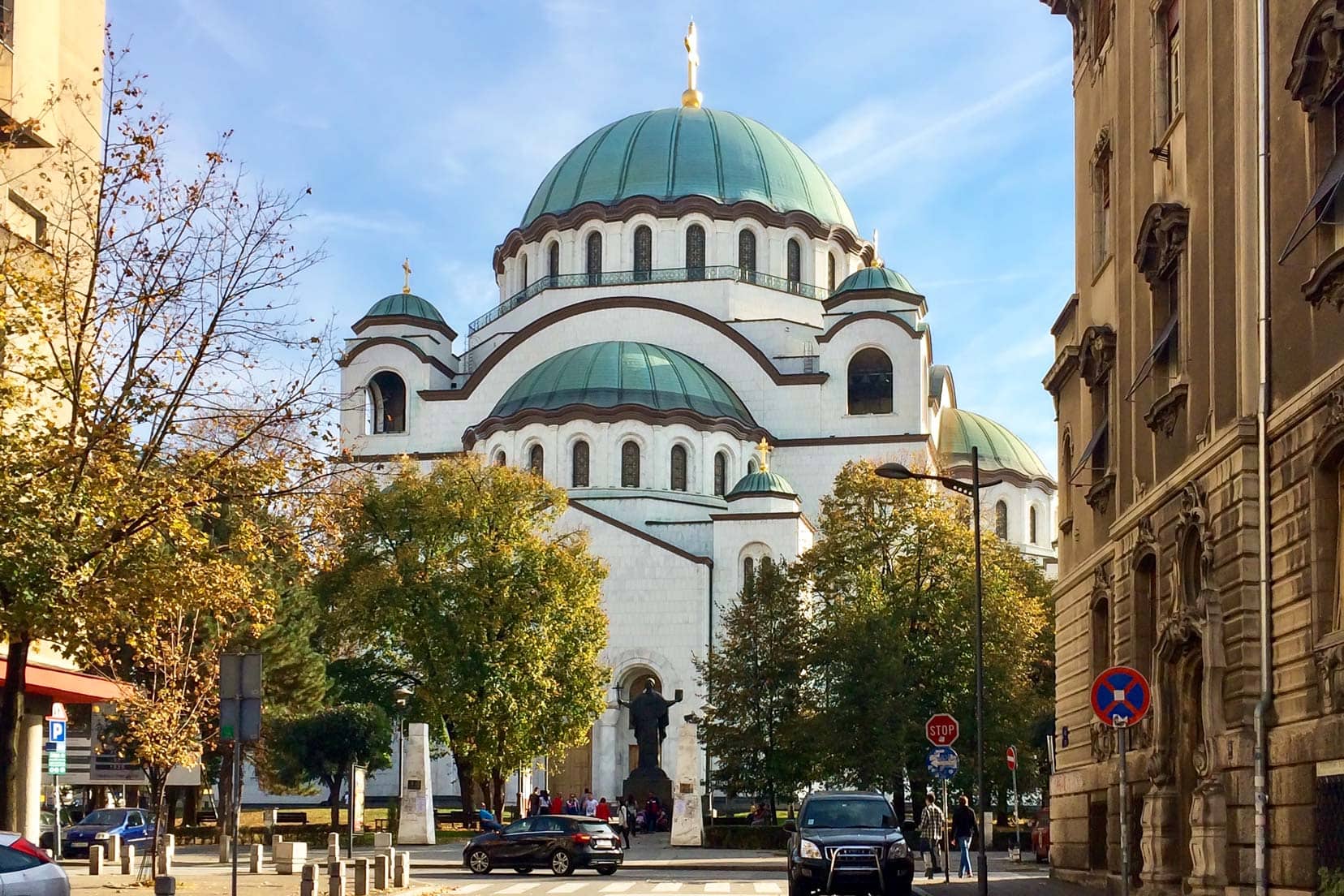
In 1885, ten years after the Serbs’ liberation from the Turks, the idea of building a church on the site emerged.
However, the first stone wasn’t laid until 1935, and then, due to communist rule and wars in the interim, construction on the temple wasn’t resumed until 1985. It finally opened in 2004, but the artwork and mosaics are still being completed.
The inside consists of massive spaces with ceilings and walls glimmering with intricate artistic murals and mosaics. An incredible and enormous building.
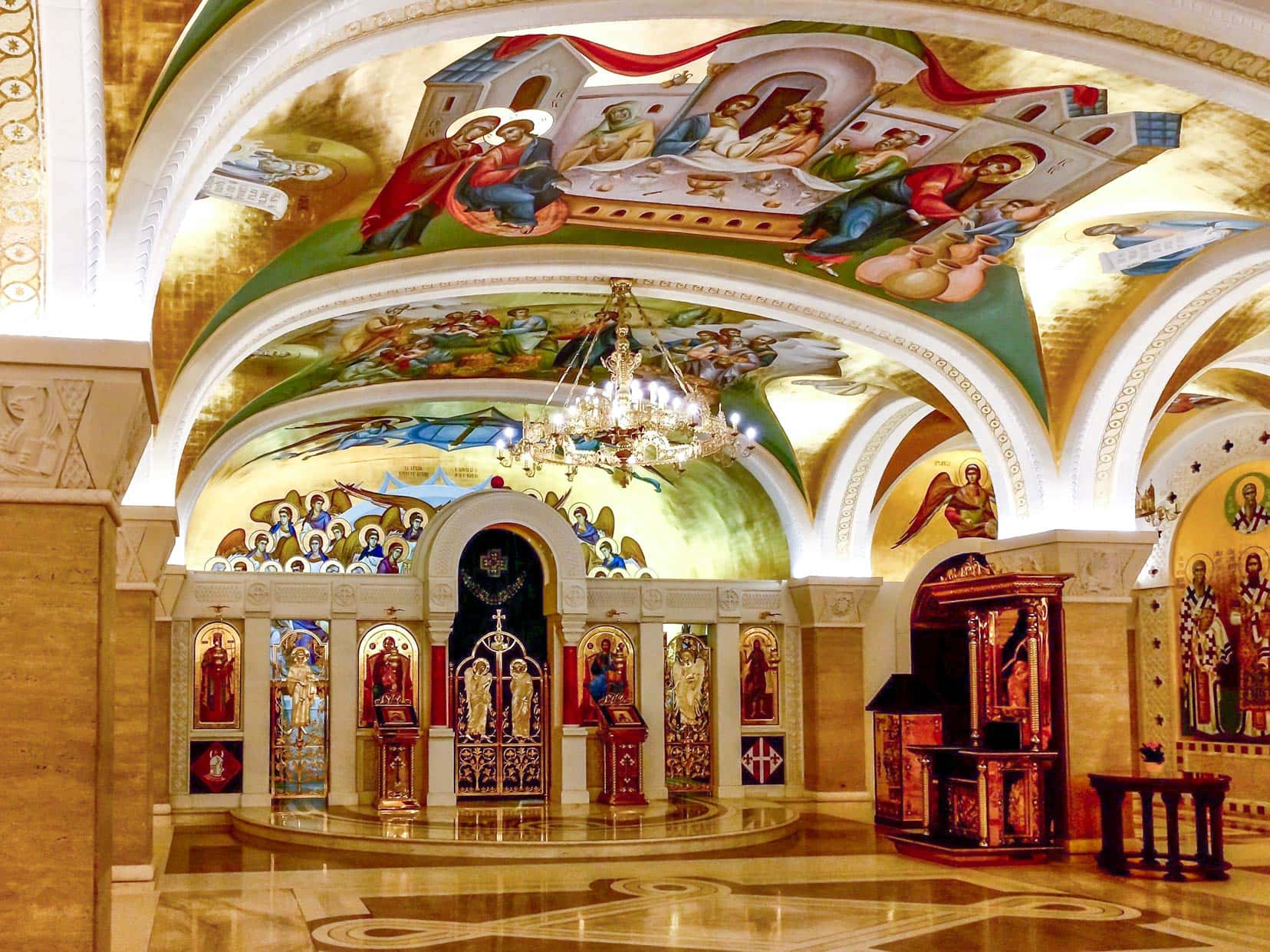
The Question Mark Kafana
The Question Mark restaurant is Belgrade’s oldest kafana (traditional restaurant). In 1892, the kafana was called ‘By the Cathedral‘, but the church authorities banned the name, and the ‘?’ was only meant to be a temporary name. However, the name stuck.
We recommend stopping here for a spot of lunch and sampling the local Serbian cuisine.
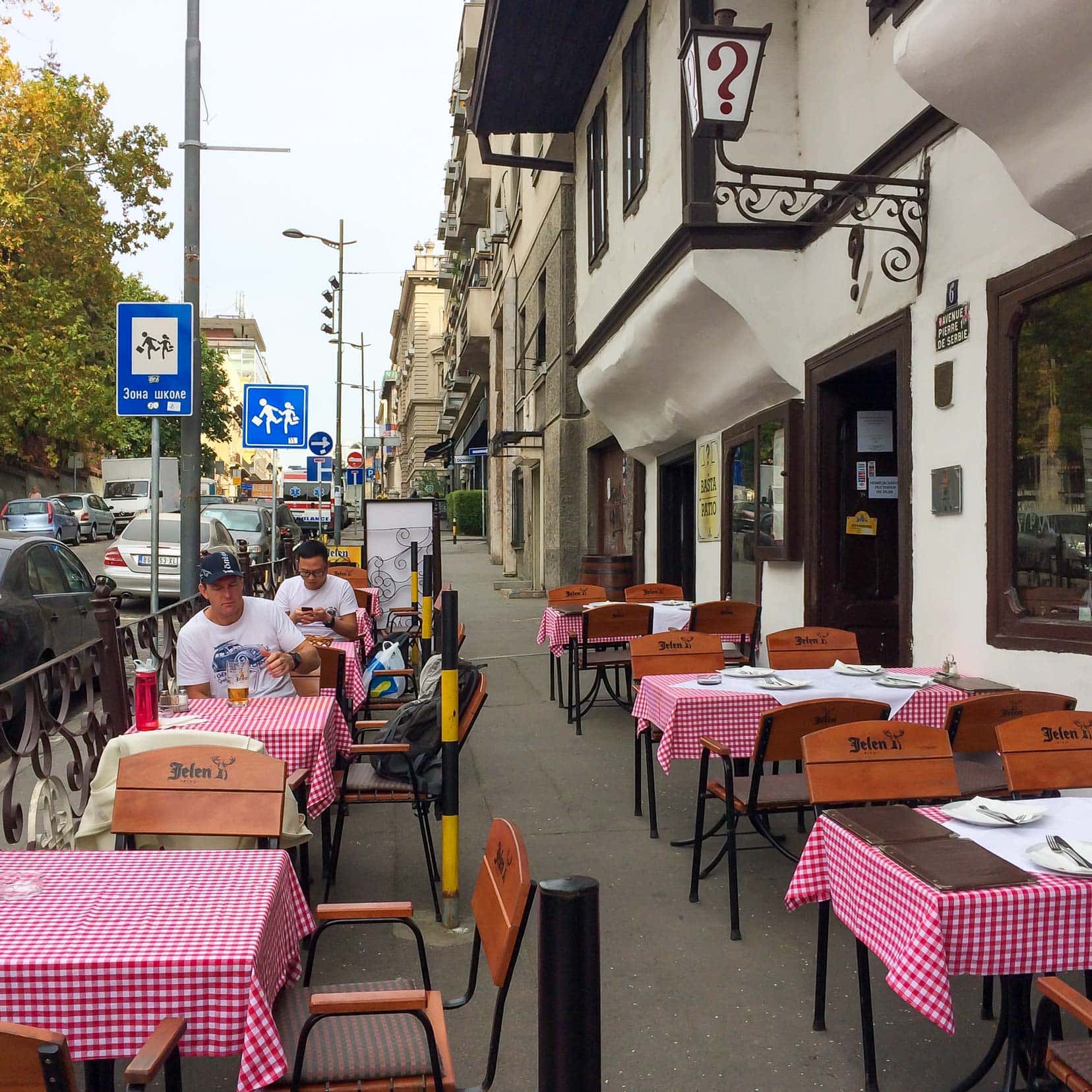
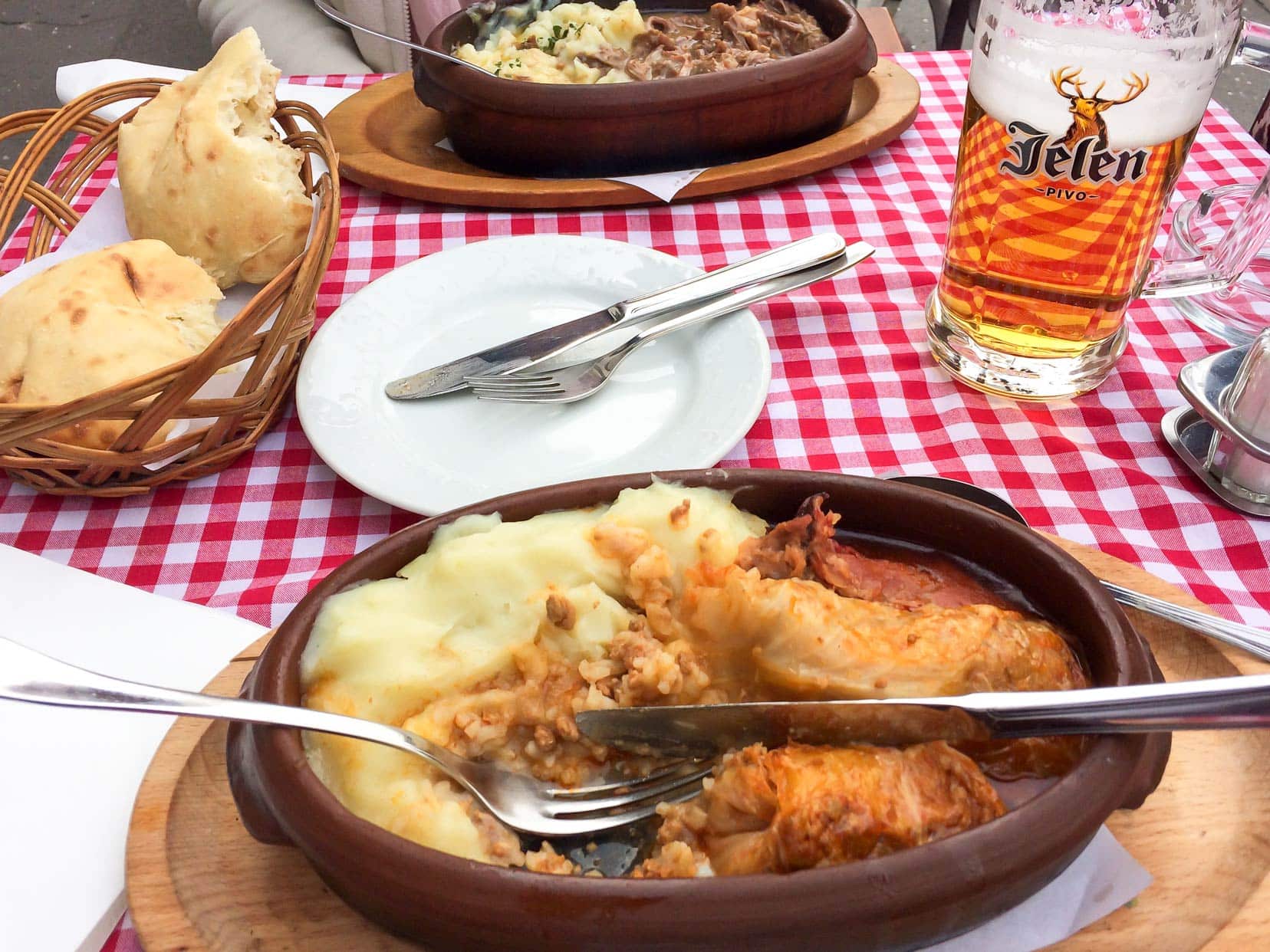
Golubac Fortress
After leaving Belgrade, we suggest driving along the scenic gorges of the Danube and visiting Golubac Fortress. This medieval fortress, built in the 14th century, consists of a palace and nine towers.
There are various ticket prices depending on how much of the fortress you want to explore. Visiting the towers does need a good level of fitness as the stairs are steep and narrow.
Its scenic location, on the edge of the Danube and surrounded by the Djerdap National Park, offers stunning views.
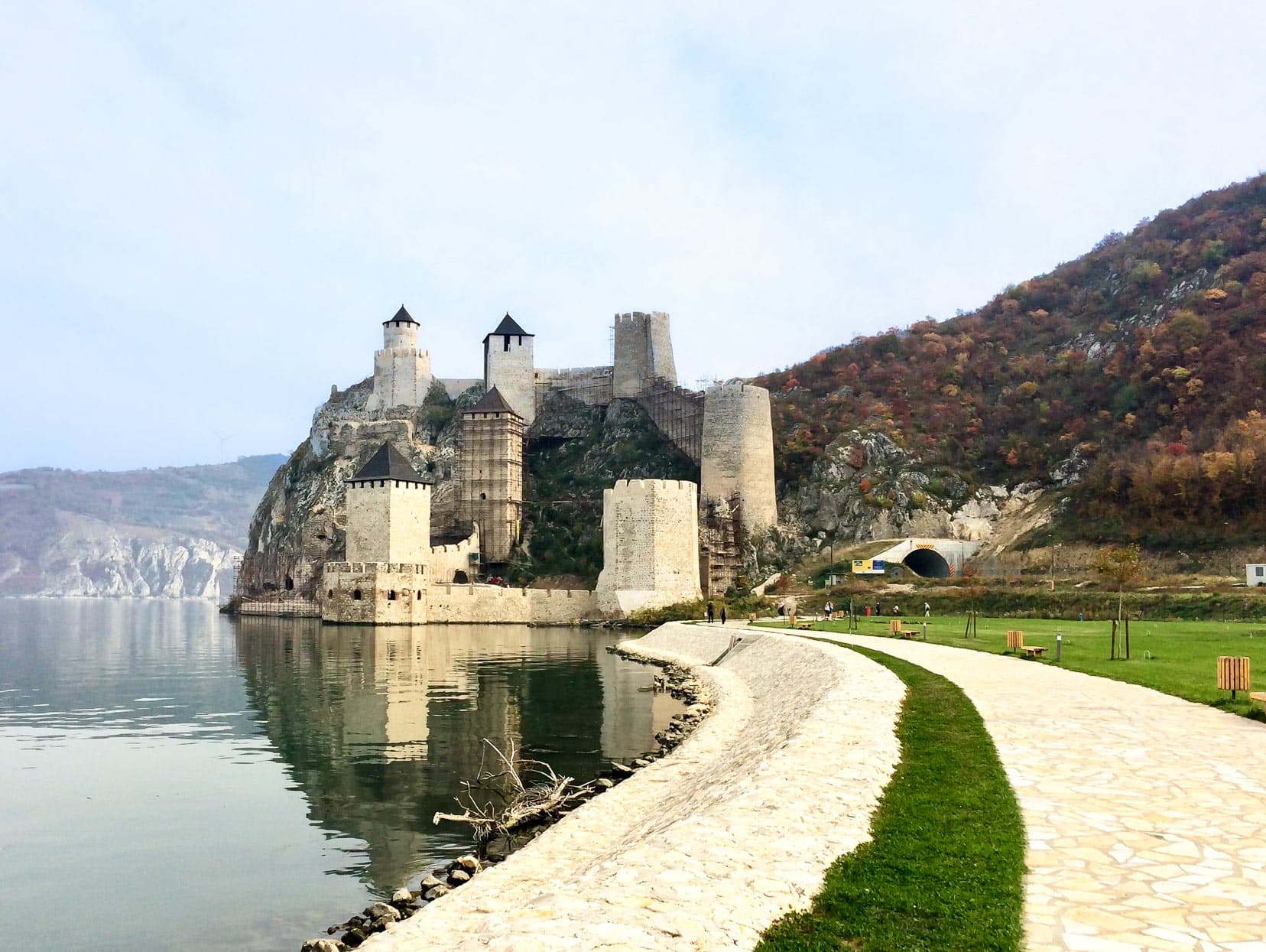
Djerdap National Park
The Derdap National Park (also known as Djerdap and the Iron Gates) became a UNESCO geopark site in 2020.
The park stretches for 100km alongside the banks of the Danube, beginning at the medieval Golubac Fortress and ending at Novi Sip. The scenery is stunning along this route, with plenty of parking spots for photo opportunities.
Make sure you don’t miss the huge 40-metre-high rock sculpture of Decebalus built into the gorge’s opposite side, the Danube’s Romanian side.
This is the face of the last King of Dacia (87-106 AD) and is the tallest rock sculpture in Europe. It took 12 sculptors 10 years to complete this incredible carving, which was finally completed in 2004.
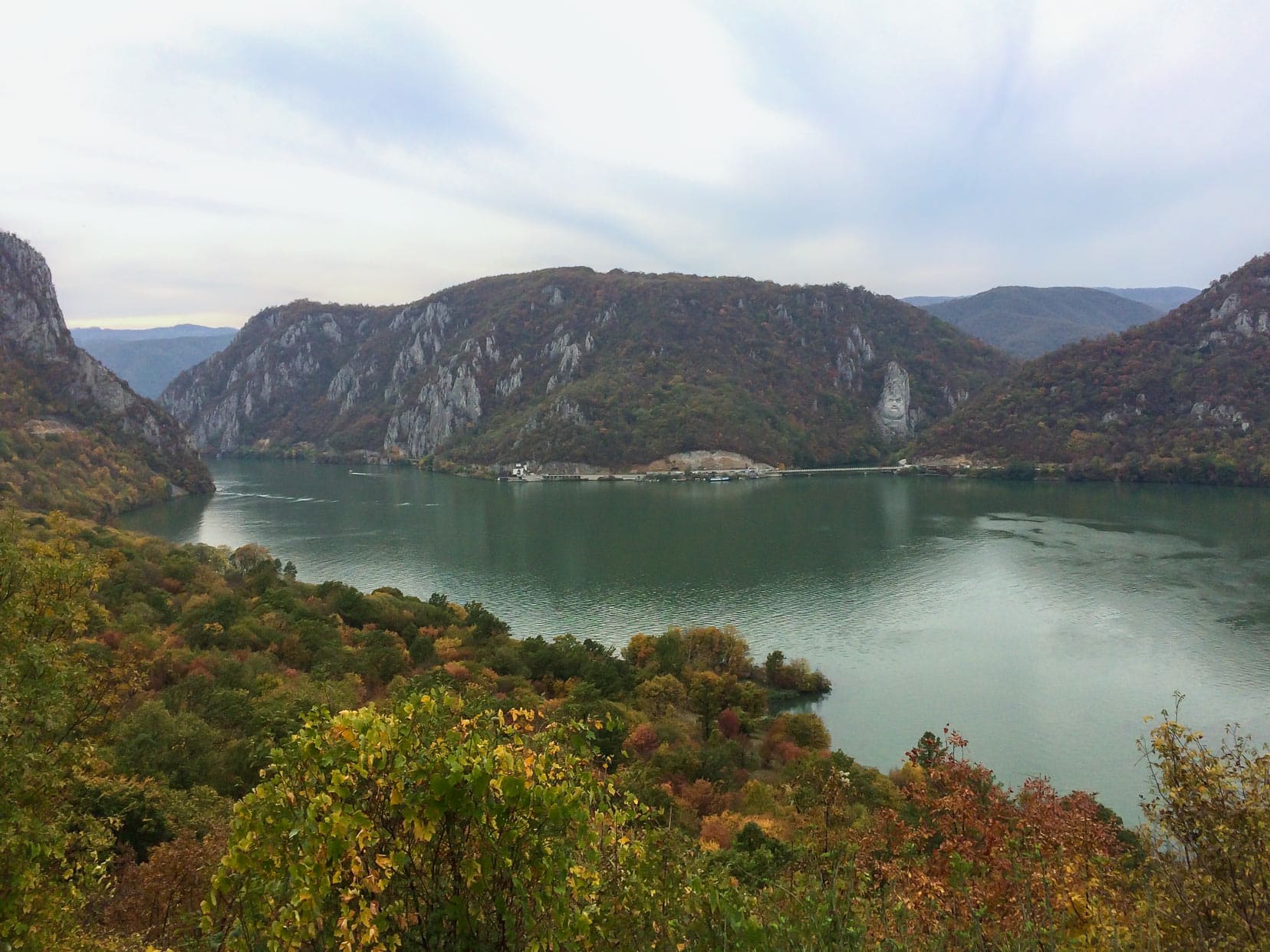
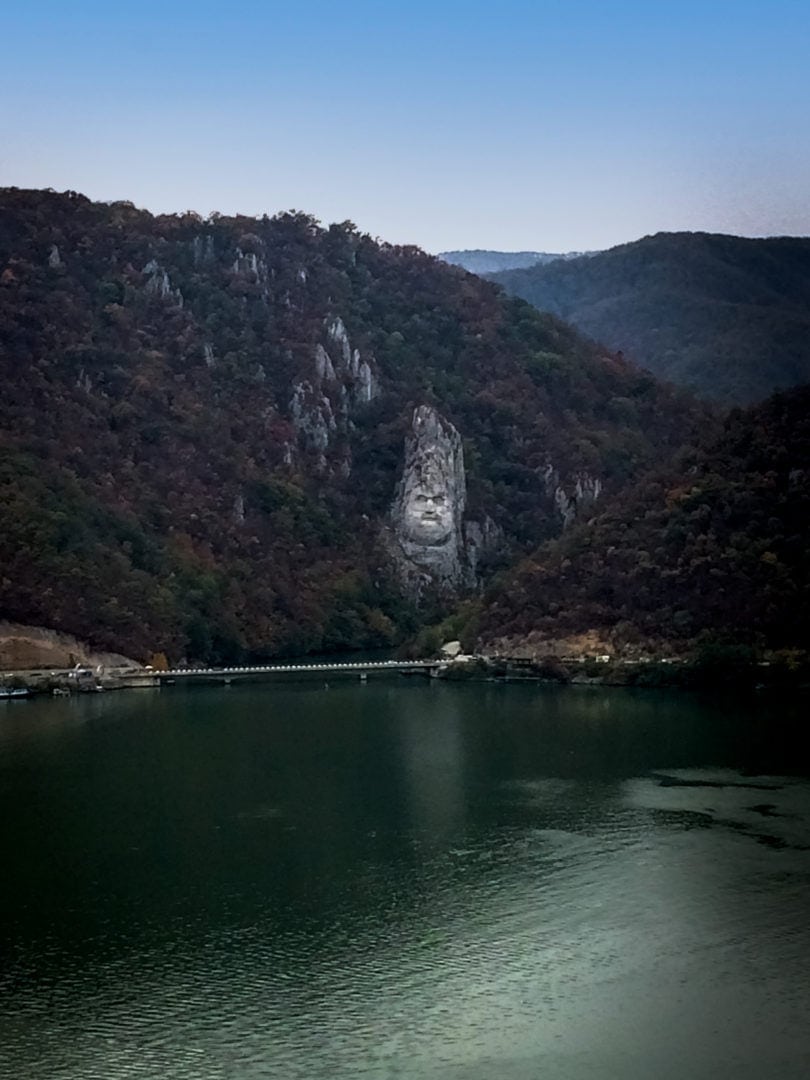
Nis Skull Tower (Ćele Kula)
One of the most interesting places and unusual things to do on a Serbia road trip is to visit the Skull Tower in Nis. For us, it was a particularly moving experience, which I shall tell you more about in a moment.
But first, let’s find out why it exists at all.
A small, innocuous-looking chapel sits in the middle of a park in the centre of Nis. Within it is a 15-foot tower embedded with human skulls.
Originally, the Nis Skull Tower held 952 skulls, but over time, many have perished, and as of 2024, only 58 remain. They are reminders of the brutality of the Ottoman Empire occupation in the early 19th Century.
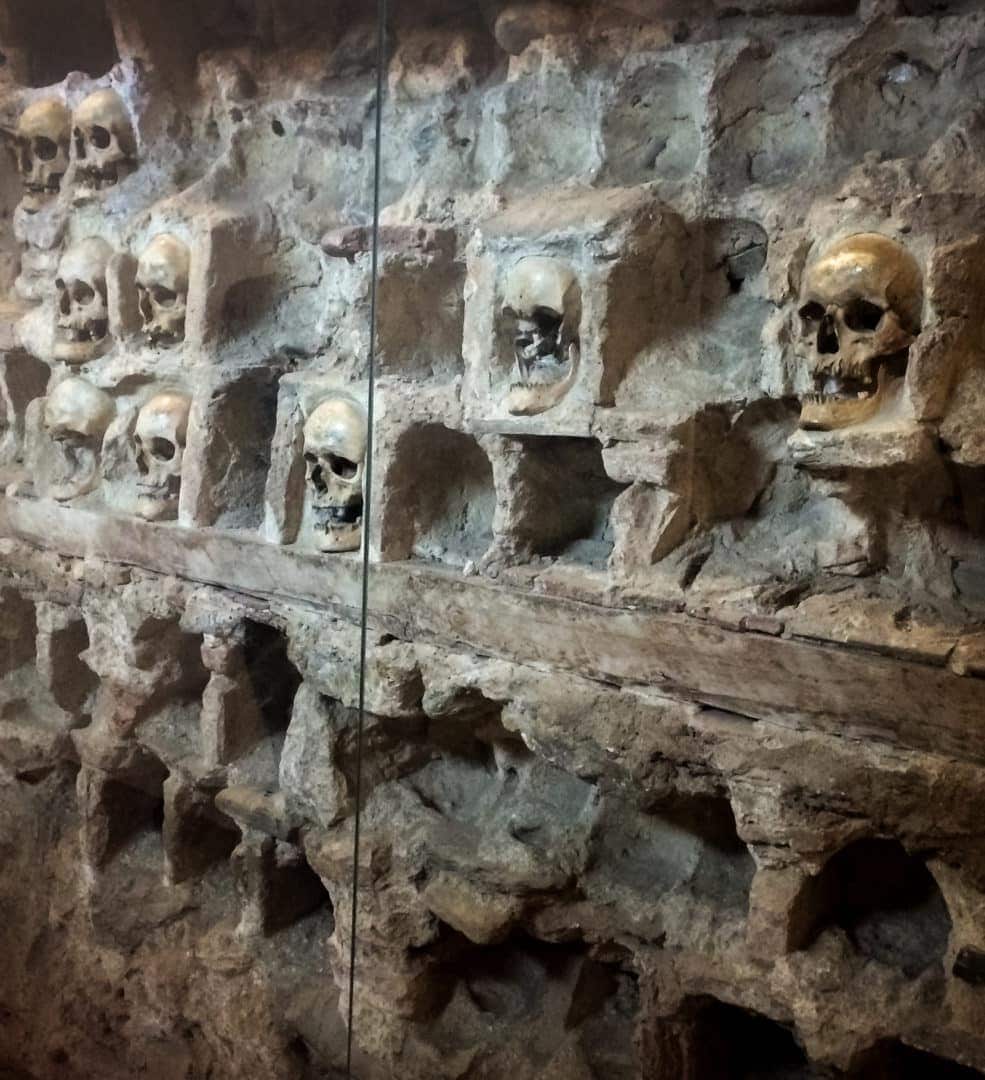
At the Battle of Cegar in 1809, outnumbered by advancing Turkish (Ottoman) forces, the Serbian rebel leader, Stevan Sinđelić, refused to surrender and set off an explosion killing not only himself but his men and many of the attacking Ottoman Army.
As a deterrent to other Serbs thinking of rebelling, the Turks decapitated the Serbian rebel’s bodies. They stripped their scalps, stuffed the skulls with cotton and shipped them back to the Ottoman Sultan Mahmud II.
He then ordered the tower building in Nis, which consisted of 14 rows of skulls facing out from the tower’s four sides. Sinđelić’s skull was placed at the very top.
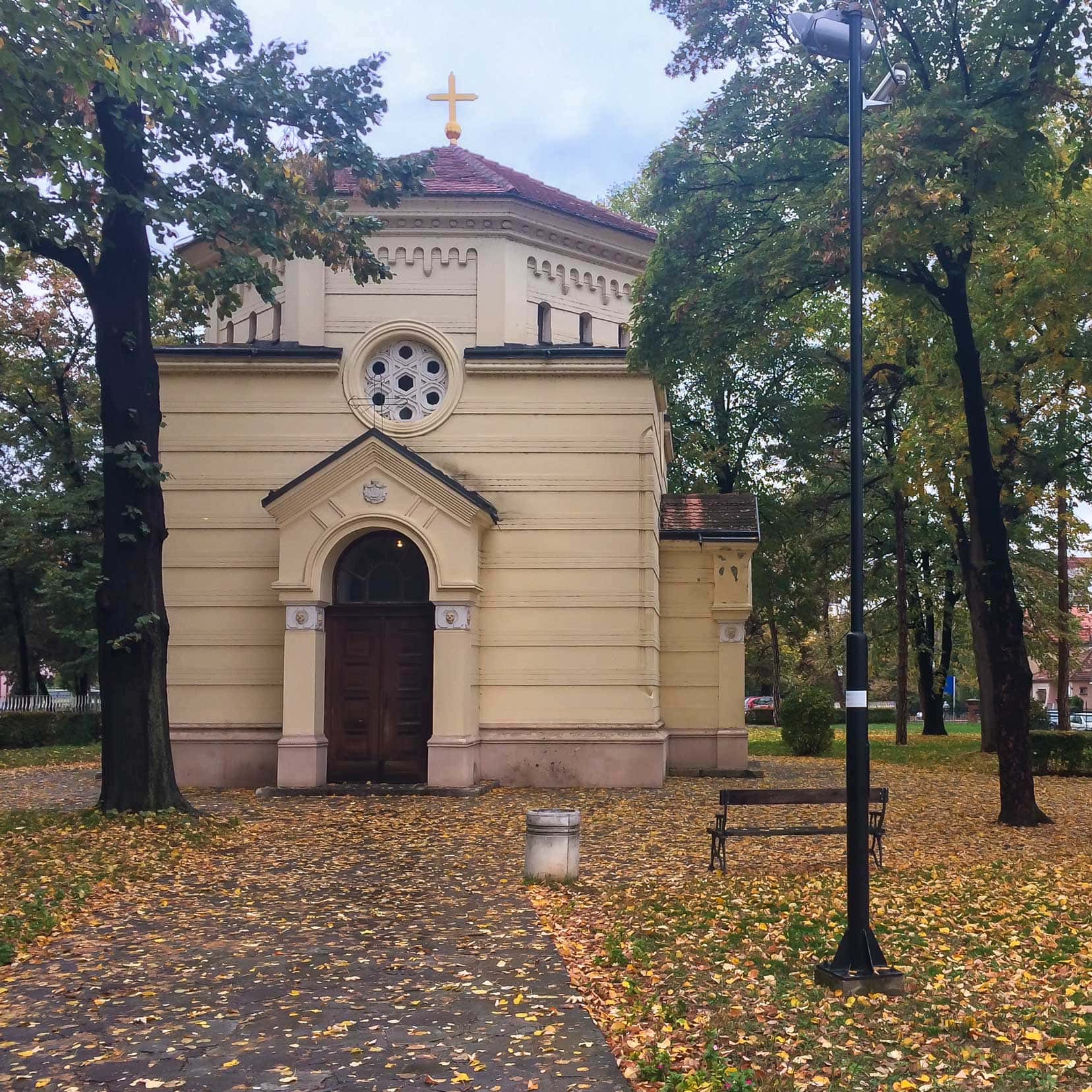
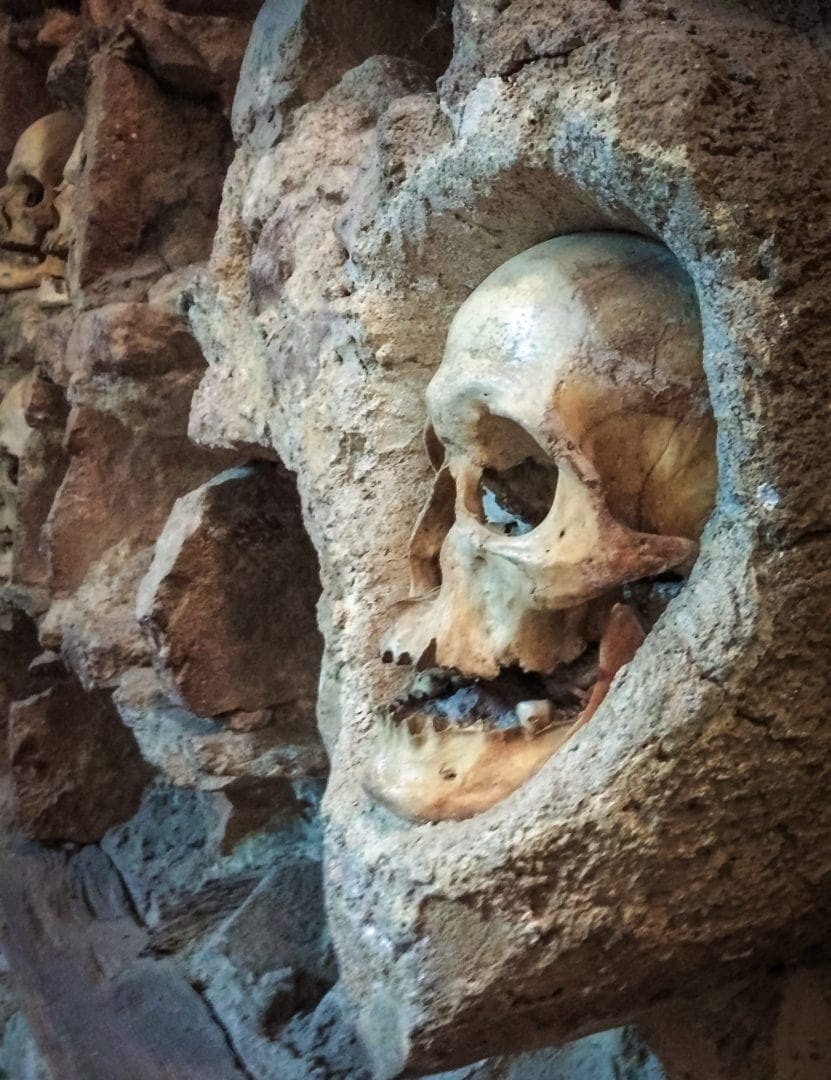
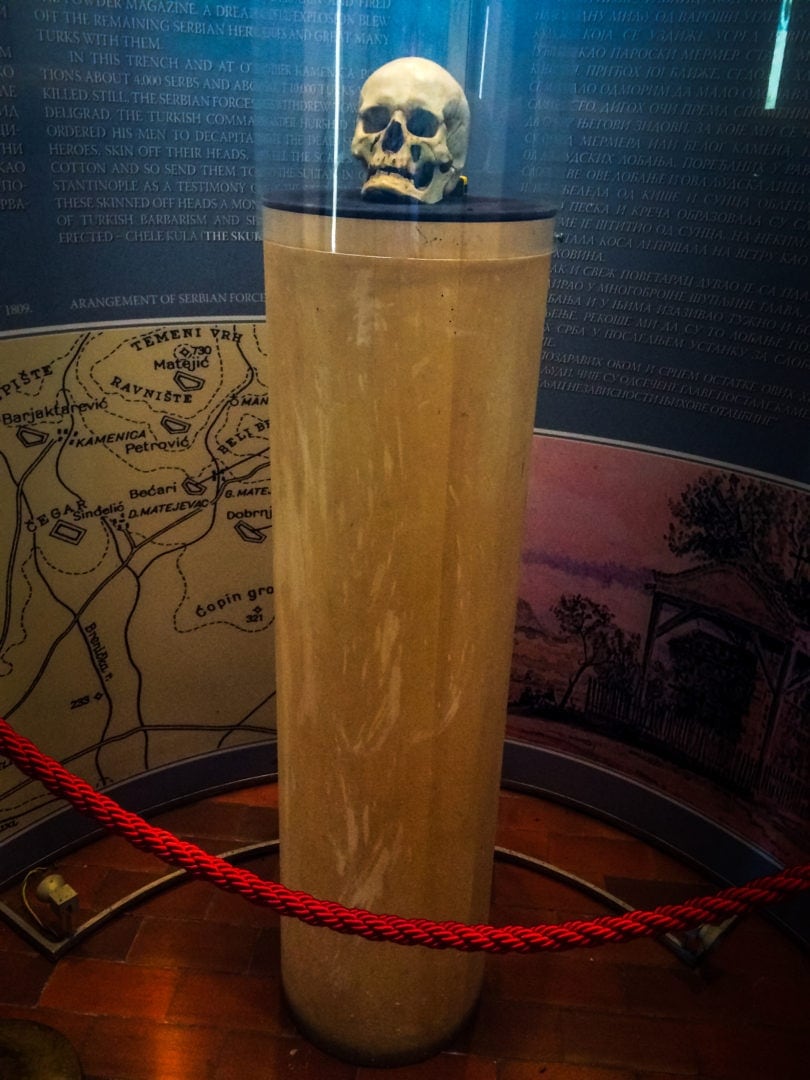
But what made our visit exceptional was the ceremony we accidentally interrupted.
We hadn’t checked its opening times and saw a sign saying it was closed on arrival at the church. We went into the park anyway to take some photos from the outside. On the off chance that I might be able to get a glimpse inside, I tried the door handle, fully expecting it to be locked.
A tall gentleman in full military uniform opened the door. I apologised, realising we were interrupting something, but he ushered us inside.
About 15 servicemen were crowded into the tiny chapel, all standing around the central skull tower. Almost as soon as we entered, they began singing.
It was an incredibly moving experience. The song rebounded off the walls of the tiny chapel, echoing across the skulls in the tower. The group of men included representatives from all arms of the Serbian military, and even though the words were foreign to us, the sentiment was clear.
I started recording, but then I felt it might be disrespectful, so I stopped and just listened instead. I wish I’d kept recording the song, at least. The part of the song I did capture is included in this short video – it’s only 26 seconds long but gives you a taste of this incredible experience.
Mataruska Banja
After driving 153 km from Nis, we based ourselves at a camper stop in Mataruska Banja, at Okanik Sports Centre (a popular winter ski resort). The area has steep, windy roads, but there are several interesting sites to visit.
The attractive 13th-century Zica Serbian Orthodox Monastery is just 3km from here, and approximately 50km further along is the UNESCO-listed Studenica Monastery.
On the road from Mataruska to the Studenica Monastery, at about the 17-kilometre mark, you’ll see the ruins of the Maglic Fortress, high on the hill. These are the ruins of a 13th-century castle and fort that once guarded the only road to the valley and protected the Studenica Monastery.
If you are in the area at the beginning of July each year, the ‘Merry Ride‘ festival takes place in the River Ibar. From the foot of the Maglic Fortress, all manner of boats and floats make their way along the River Ibar from here to Kraljevo.
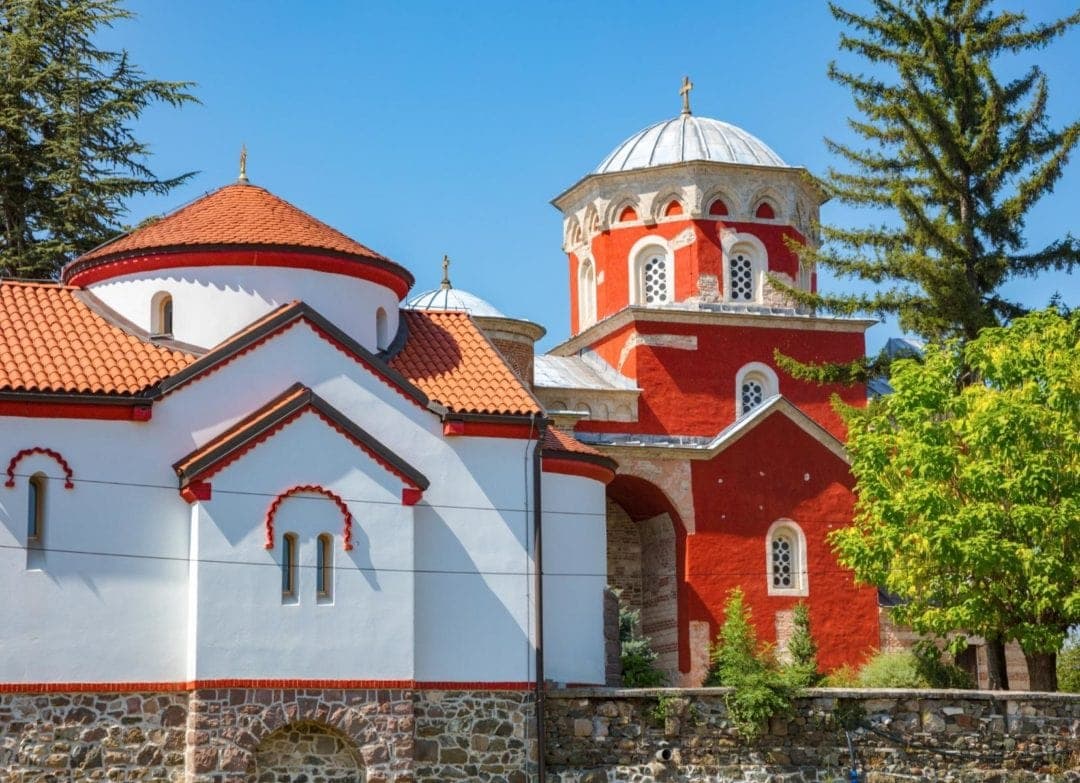
Planning Your Serbia Road Trip
If you are travelling from Bosnia-Herzegovina, joining this road trip anywhere in Serbia is easy. However, if you are starting your road trip in Serbia, we recommend beginning your trip in Belgrade.
If you are a city lover, then before travelling east towards the Djerdap Gorge, we would suggest you head north to Serbia’s second city, Nova Sad.
Depending on time and insurance requirements, you may also wish to take a detour into neighbouring Romania or Bulgaria. Unfortunately, our hired motorhome travel insurance didn’t cover us for those two countries, so we still have them on our list of countries to visit.
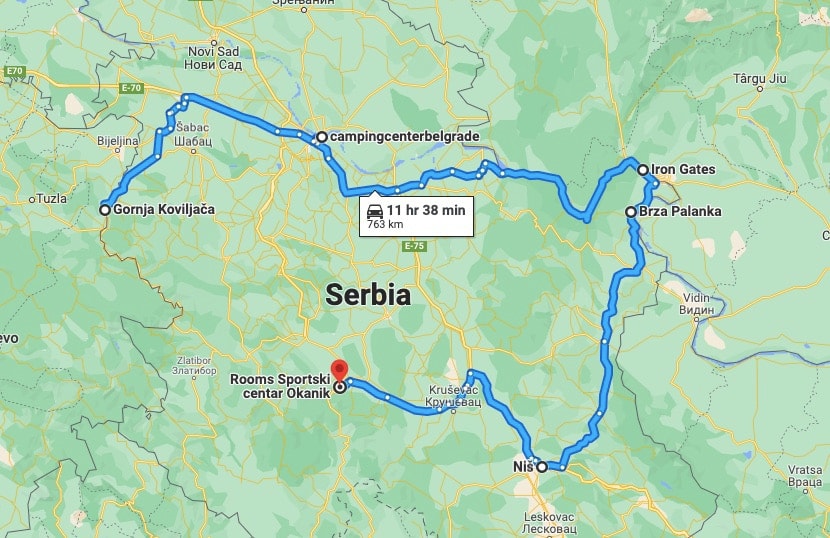
Serbia 5-Day Itinerary
Day 1: Belgrade Exploration
- Morning: Start with a guided walking tour of Belgrade. Visit the Belgrade Fortress in Kalemegdan Park for breathtaking views of the confluence of the Sava and Danube Rivers.
- Afternoon: Explore the Bohemian Quarter, Skadarlija, for lunch in a traditional Serbian kafana. Enjoy the vibrant atmosphere and local cuisine.
- Evening: Visit the Sava Temple, marvel at its architecture and significance, and have dinner at the Question Mark kafana, experiencing Serbia’s oldest restaurant.
🥣 For a culinary twist on a walking tour, try the:
Culinary Tour with Serbian Food Tastings | ⭐️5/5 |⏳ 3.5 hours | Read reviews and book here
⏱️ If you have longer in the city, check out day trips from Belgrade:
Western Serbia Tour: Visit the Drina River House, explore the Mokra Gora Wooden Village, and ride on the historic Sargan 8 Railroad | ⭐️4.7/5 | ⏳ 12-13 hours| Read reviews and book here
Uvac Nature Reserve Tour: ⭐️ |⏳ 15 hours | Immerse yourself in Serbia’s nature | book here
Day 2: From Belgrade to Golubac Fortress
- Morning: Depart early for Golubac Fortress. Enjoy the scenic drive along the Danube, with stops for photography.
- Afternoon: Explore the fortress and its surroundings. Engage in a short hike or a picnic with views of the Danube.
- Evening: Settle in a local campsite or a guesthouse, experiencing Serbian hospitality.
If you want to stay in Belgrade – consider this day tour to the fortress and Iron Gate instead:
Golubac Fortress and Iron Gate Gorge Tour | | ⭐️4.7/5 | ⏳ 10 hours| Read reviews and book here
Day 3: Nis Historical Insights
- Morning: Travel to Nis, a city rich in history. Visit the Skull Tower, which offers a sober reflection on Serbian history.
- Afternoon: Visit the Nis Fortress and the old town, wander the markets, and try Serbian street food.
- Evening: Explore Nis’s vibrant city centre, enjoy local cuisine, and maybe catch a live music performance.
Day 4: Spa Retreat and Monastic Heritage
- Morning: Depart for Mataruska Banja. This is a spa town, so you might like to indulge!
- Afternoon: Visit the nearby monasteries, Zica and Studenica, soaking in the spiritual heritage and architectural beauty.
- Evening: Relax and rejuvenate for tomorrow’s hiking and views, reflecting on Serbia’s rich experiences.
Day 5: Explore Uvac Special Nature Reserve
(Note: we didn’t do this as we ran out of time on our schedule)
- Morning: Depart for Veliki Vrh Viewpoint or the Molitva Viewpoint. At the end of 2023, new roads were built to the main lookouts. Check with locals for the best route. We found this information on Tripadvisor from a visitor in October 2023: Route 21 to the lookout was now paved.
- Afternoon: Hike in the reserve and take in the magnificent views, making sure to take lots of travel photos!
- Evening: Return to Belgrade or continue your journey, as we did, into Montenegro and into Albania.
You might like to consider a day trip – though rather long from Belgrade: Uvac Nature Reserve Tour: ⭐️ |⏳ 15 hours | Immerse yourself in Serbia’s nature | book here
Our 5-Day Serbia Road Trip Route
The Serbia road trip route we took before returning to Bosnia Herzegovina was as follows:
- Gornja Koviljača to Belgrade — 154km (3 hours)
- Belgrade to Brza Palanka via Iron Gate Gorge — 272 km (5 hours)
- Brza Palanka to Nis — 180km (3 hours)
- Nis to Mataruska Banja— 153 km (3 hours)
Total Distance: 763 Km
Motorhoming & Campervanning in Serbia
Tips for Campervanning in Serbia
- For general motorhome tips, you will find this post useful: Best Motorhome Tips for Beginners
- Our Europe by Campervan article will also give you many helpful pointers for driving in Europe.
- Our detailed list of Campervan Gadgets and Gizmos that will make your road trip easier
- When it came to finding campervan overnight stops in Serbia, Camper Contact was invaluable, and Park4night was also helpful.
- Wild camping in Serbia is tolerated, but keep a low profile. For example, don’t hang out the washing and set up camp with your chairs and table outside
- And travelling with your partner? We’ve been on the road together since 2017 – and often spend 24/7 together. Here’s a detailed guide on the lessons we’ve learnt travelling as a couple.
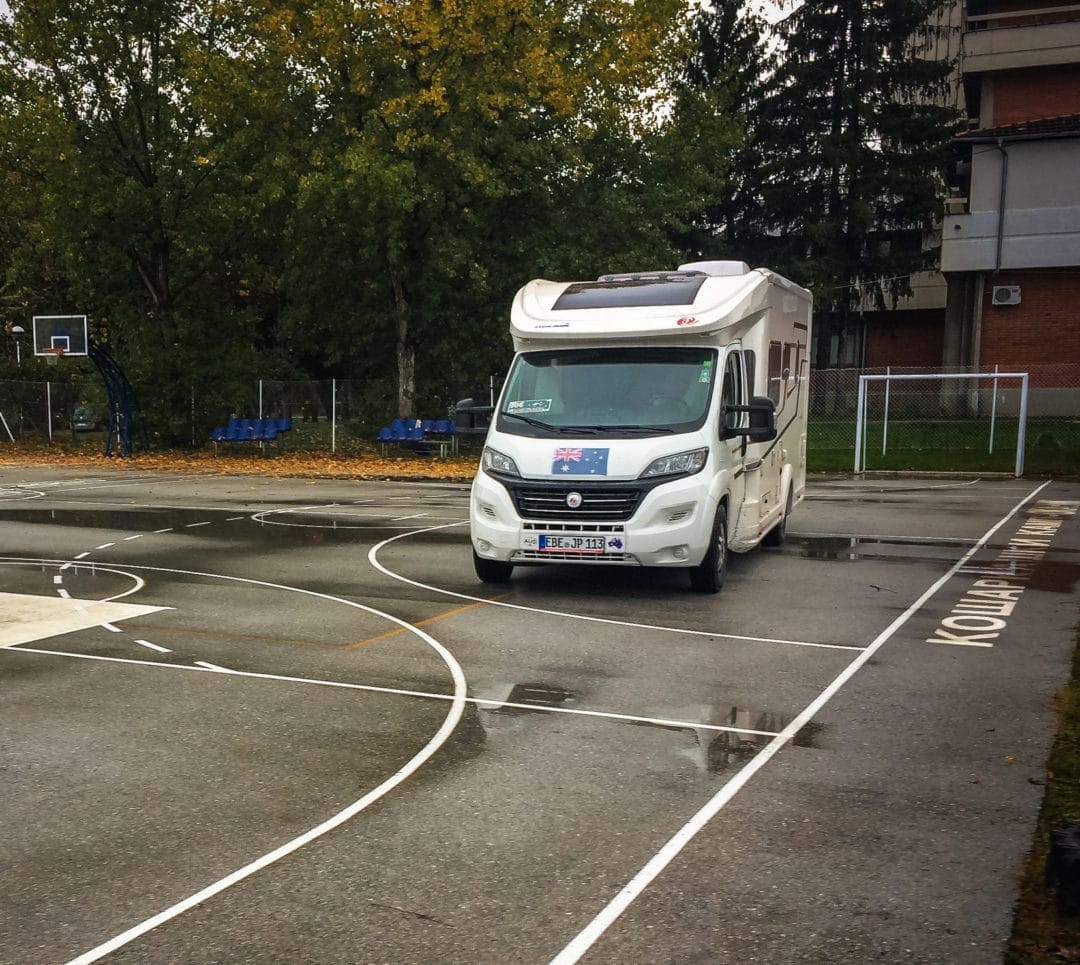
Serbia Campervan Rental
On our travels through Europe, we found that the Motorhome Republic could negotiate a much better deal than we could get when we tried going to the motorhome rental companies ourselves – and they did all the hard work!
We are now affiliated with them because we were so impressed with them.
Also, remember to check what campervan accessories come with the motorhome and whether the price includes them.
Where we camped on this Serbian Road Trip
See the above map for locations marked with orange motorhome icons.
- Gornja Koviljaca, Serbia: Sunkana Reka — We camped for free at the Carpark, not realising it was the site we had found – it should have cost 10 euros.
- Belgrade, Serbia: We camped at the Camping Centre Belgrade, an RV Repair Centre, 3.5km from the centre of Belgrade. 15 Euro, including Wi-Fi, electricity, fresh water, and dumping facilities.
- Brza Palanka, Serbia: Camping Mirocka Voda Campsite is beside the Danube River; see the picture below. We negotiated a lower price because it was expensive. Initially, it was 16 Euros, but we finally dropped it to 10 Euros.
- Mataruska Banja Serbia: Sport Centre Okanik. Easy overnight stop at a sports centre with a cafe.
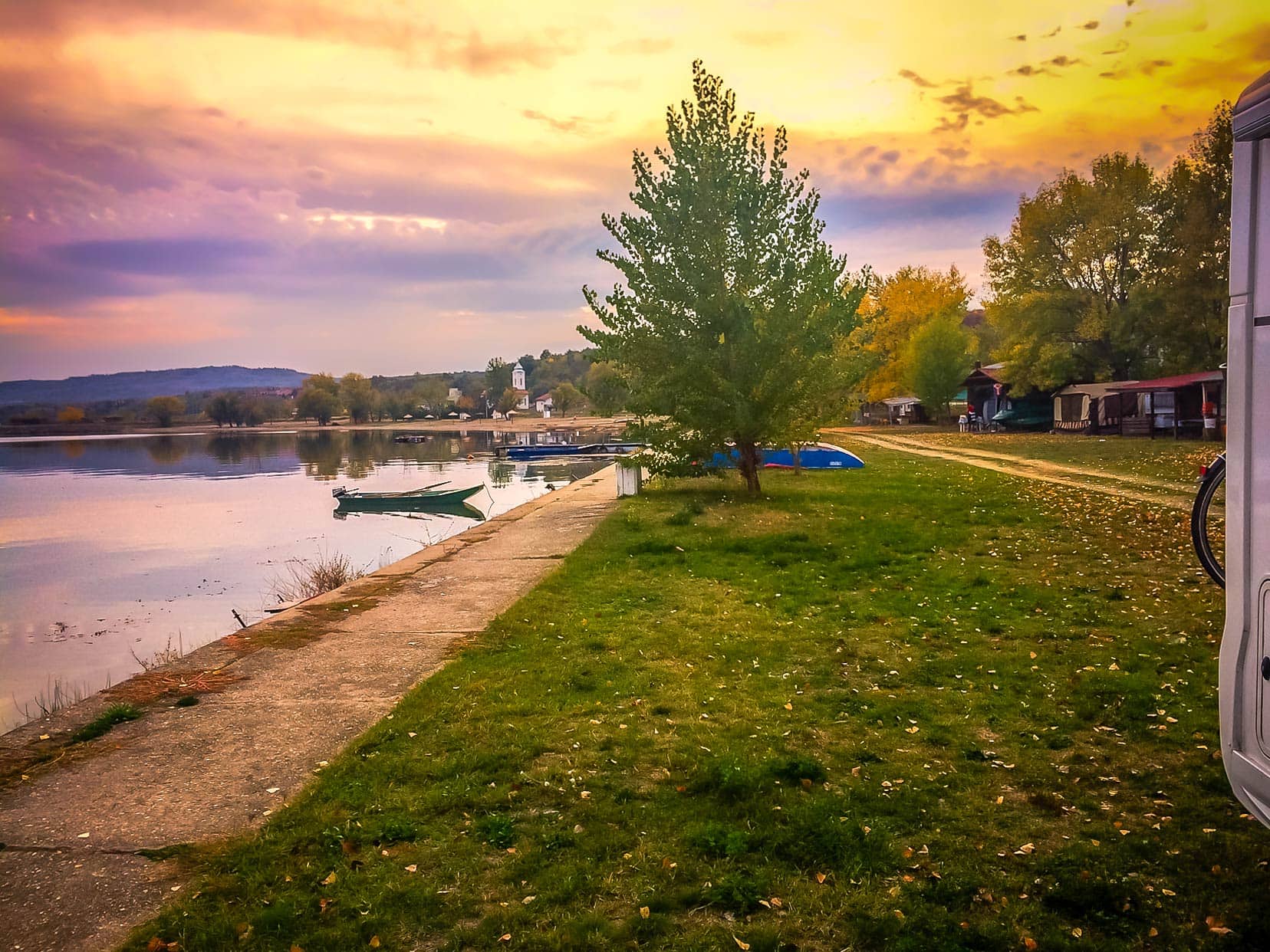
Wild Camping in Serbia
Although not officially sanctioned, wild camping is tolerated in Serbia, and as long as you park discreetly (don’t set up chairs and tables outside), you should be ok.
Accommodation in Serbia:
If you are looking for accommodation in Belgrade, try these deals on Booking.com and throughout SERBIA
Driving in Serbia
Many rural area roads can be in poor condition, but the major routes are fine.
- In Serbia, you drive on the right
- Seatbelts are compulsory
- You will need to have the following documents:
- Drivers licence (An international driver’s licence isn’t required)
- Vehicle insurance
- Vehicle registration document
- Passport
- You are also required to have the following in your vehicle:
- Warning triangle
- Winter tyres and snow chains if you drive between 1st November and 1st April.
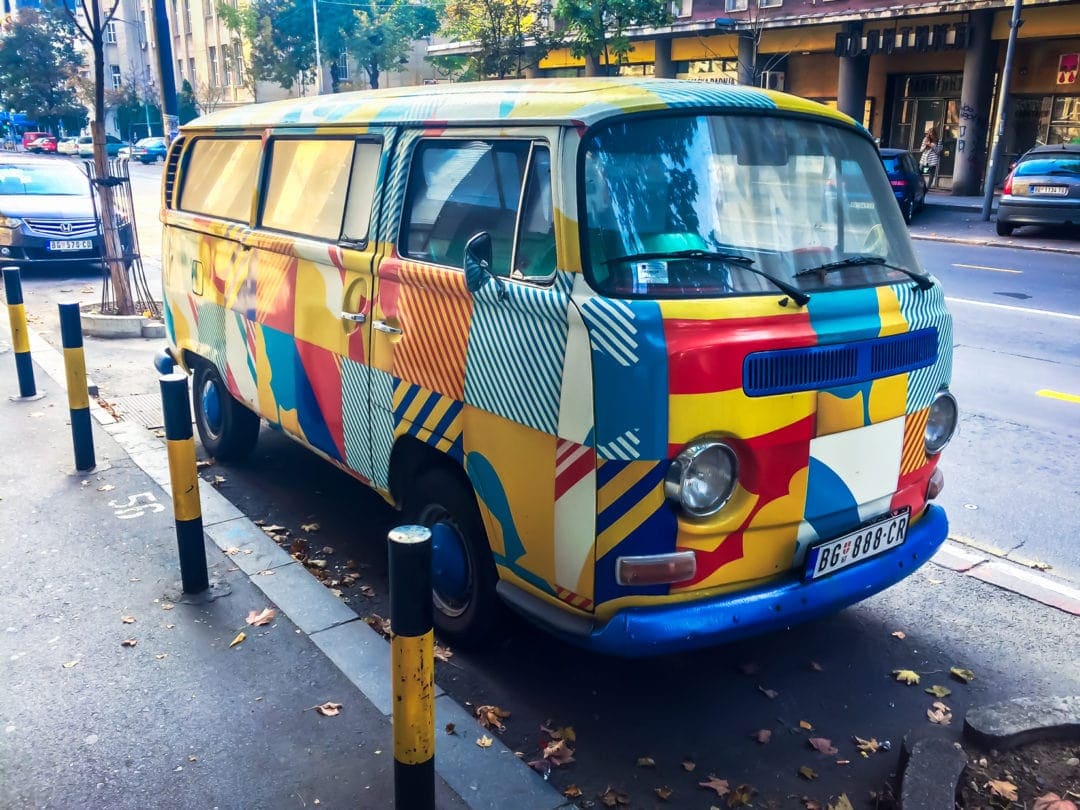
- If you drive in Serbia with a right-hand-drive car, you may need to adjust the beam pattern to suit driving on the right so that the dipped beam doesn’t dazzle oncoming drivers. You can purchase inexpensive beam deflectors to adjust the beam.
- Main headlights or dipped headlights must be on during day and night
- Horns must not be used in built-up areas, or at night unless there is imminent danger
- Trams have priority over all other vehicles. Priority must also be given to cyclists using cycle tracks
- Serbia Toll Roads: The main motorways connecting to Belgrade have tolls. To avoid them, you can program your navigator to avoid tolls, and you can also use https://www.tolls.eu/serbia to plan your trip and find out the costs of tolls, which are collected at the toll gates and can be paid with Serbian dinar, euro or credit card
- Speed Limits are as follows unless otherwise signposted and on dry roads
- 120 -130 km/h (80 mph) on motorways
- 80 km/h -100 km/h (50 mph) outside urban areas
- 50 km/h (31 mph) in towns and cities.
- Emergency Number: 112
Handy Information for Road Tripping in Serbia
- Currency: Serbian dinar
- Handy Words:
- Thank you = Hvala (HVAH-lah)
- Good day, hello = Dober dan
- Yes = Da
- No = Ne
- Serbia uses the Cyrillic alphabet but also the Latin alphabet (universal script) on most signs
- Water is safe to drink from the tap
Serbia Road Trip … That’s a Wrap
Serbia was a complete surprise, and in the future, we want to go back and spend a more leisurely time road-tripping there.
Five days was just enough to get a feel for and taste what this country offers, but we need more time to explore its mountains and national parks.
Have you been to Serbia — what are your favourite nature spots?
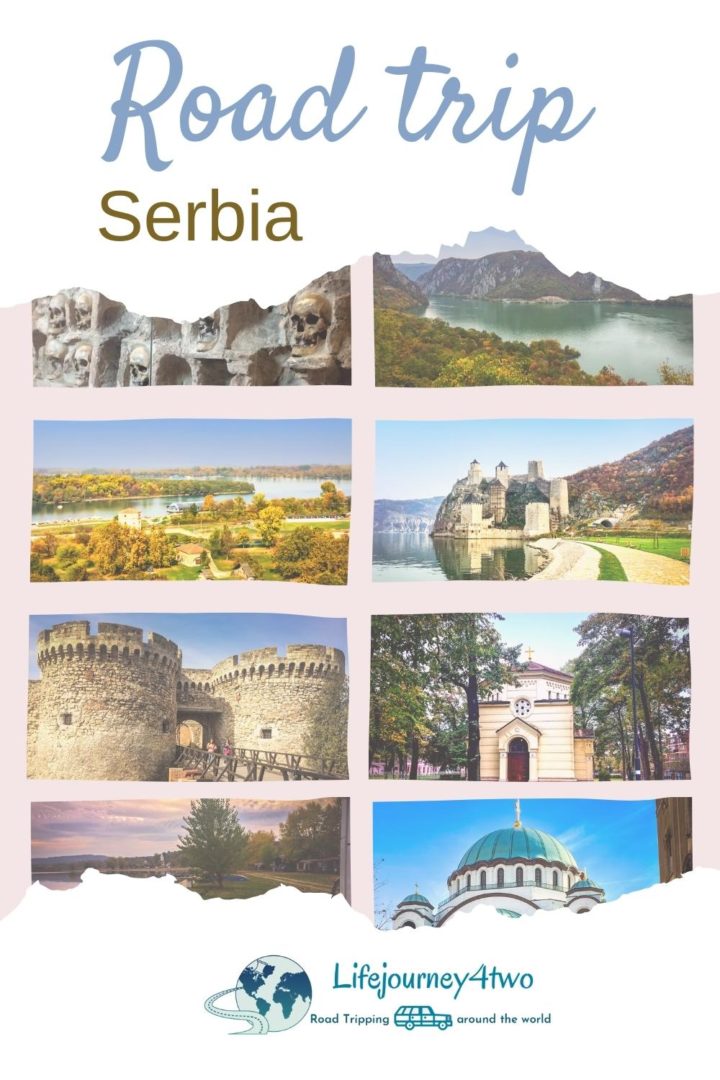
You may also Enjoy Reading:
- How to Prepare for Motorhoming in Europe
- Motorhoming in Croatia: The Perfect Road Trip
- Albania Road Trip: A Country of Surprises
- Campervan Greece Road Trip
- Road Trip Quotes and Inspiration
Planning Your Travels?
These are the travel resources we recommend and use when planning our trips.
- 🚘 Car Hire: We use DiscoverCars.com
- Motorhome/Campervan Rental: We highly recommend the Motorhome Republic
- 🪪 Order your International Driver’s Licence online here
- 🛏 Book Accommodation: We use Booking.com to find accommodation that suits our budget
- 🐶 Pet Sitting/Pet Sitters: Check Out TrustedHousesitters here (Use our Discount code: LIFEJOURNEY25 for 25% off. )
- Activities and Experiences: Get Your Guide and Viator
- Travel Insurance: Safetywing or World Nomads
- 🥾 Travel Gear and Accessories: Check out our top picks here — Lifejourney4two page on Amazon
For a more thorough list, visit our Travel Resources page here.

